 |
 |
| J Appropr Technol > Volume 9(1); 2023 > Article |
|
Abstract
ļ│Ė ņŚ░ĻĄ¼ļŖö ņĀ£ņŻ╝ņØś ĒÖśĻ▓ĮņĀĢņ▒ģ ņżæ ļ¼╝Ļ│╝ ĒÅÉĻĖ░ļ¼╝ņØä ņżæņŗ¼ņ£╝ļĪ£ ĒĢ£ ņŖżļ¦łĒŖĖ ĻĘĖļ”░ļÅäņŗ£ļ¬©ļŹĖ ĒÖĢņé░Ļ│╝ ņ¦ĆņåŹĻ░ĆļŖźĒĢ£ ĻĘĖļ”░ ļ╣äņ”łļŗłņŖż ņä£ļ╣äņŖżļź╝ ņĀ£ņŗ£ĒĢśĻ│Āņ×É ĒĢ£ļŗż. ņØ┤ļź╝ ņ£äĒĢ┤ ņŖżļ¦łĒŖĖĻĘĖļ”░ņĀĢņ▒ģņØä SDGsņÖĆ ņł£ĒÖśĻ▓ĮņĀ£ ņ░©ņøÉņŚÉņä£ ĒöäļĀłņ×äņØä ņĀ£ņŗ£ĒĢśĻ│Ā, ņżæņĢÖņĀĢļČĆ ļ░Å ņĀ£ņŻ╝ļÅä ņ░©ņøÉņØś ņŖżļ¦łĒŖĖĻĘĖļ”░ņĀĢņ▒ģņØä ņ£äĒĢ£ ņāüņ£äĻ│äĒÜŹĻ│╝ņØś ņŚ░Ļ│ä ļ░Å ņ¦ĆņŚŁļ¼ĖņĀ£ ĒĢ┤Ļ▓░ņØä ņ£äĒĢ£ ļ¼ĖņĀ£ņ¦ĆļÅä ņ×æņä▒ Ēøä ņĀäļץņØä ņĀ£ņŗ£ĒĢśņśĆļŗż. ņØ┤ļź╝ ņ£äĒĢ┤ ņŻ╝ļ»╝ņØä ņżæņŗ¼ņ£╝ļĪ£ ĒĢ£ ĻĄŁņĀ£ĒśæļĀź ņ”Øņ¦äņØä ĒåĄĒĢ£ ņĀ£ņŻ╝-SDGs Ļ│ĄĻ░äņŚ░Ļ│ä ļ░Å ņ¦ĆņåŹĻ░ĆļŖźĒĢ£ ĻĘĖļ”░ Ļ▒░ļ▓äļäīņŖżļź╝ ņĀ£ņŗ£ĒĢśņśĆļŗż.
This study aims to present the spread of a smart green city model centered on water and waste management among Jeju's environmental policies, and to provide sustainable green business services. To this end, a frame was introduced for the smart green policy at the SDGs and circular economy level, and a strategy was proposed after creating a problem map for linking with the upper plan for smart green policy at the central government and Jeju Island level and solving regional problems. Furthermore, the spatial linkage of Jeju with SDGs and sustainable green governance through improving resident-centered global cooperation were illustrated.
ņĀä ņäĖĻ│äņĀüņØĖ ņĮöļĪ£ļéś19ļŖö ļŗ©ņł£Ē׳ ņØĖņłśĻ░ÉņŚ╝ļ│æņŚÉ ļīĆĒĢ£ ļ¼ĖņĀ£ļ┐Éļ¦ī ņĢäļŗłļØ╝ ņ¦ĆĻĄ¼ņś©ļé£ĒÖö ļ░Å ĒÖśĻ▓Įļ¼ĖņĀ£ ļō▒ ĻĖ░Ēøäņ£äĻĖ░ ļ¼ĖņĀ£ļĪ£ Ļ▓ĮņĀ£, ņé¼ĒÜī, ĒÖśĻ▓ĮņĀüņ£╝ļĪ£ ļ¦ÄņØĆ ļ¼ĖņĀ£ļź╝ ņĀ£ĻĖ░ĒĢśĻ│Ā ņ׳ņ£╝ļ®░, ĒÖśĻ▓ĮņĀü ņĖĪļ®┤ņŚÉņä£ ņ¦ĆņåŹĻ░ĆļŖźĒĢ£ ņŚÉļäłņ¦Ć ņĀäĒÖśņŚÉ ļīĆĒĢ£ Ļ┤Ćņŗ¼Ļ│╝ ĒĢ©Ļ╗ś ņł£ĒÖśĻ▓ĮņĀ£ ļ░Å Ļ│Ąņ£ĀĻ▓ĮņĀ£ļź╝ ĒåĄĒĢ£ ĒÅÉĻĖ░ļ¼╝ Ļ┤Ćļ”¼ ļō▒ņŚÉ ļīĆĒĢ£ Ļ┤Ćņŗ¼ņØ┤ ļåÆņĢäņ¦ĆĻ│Ā ņ׳ļŖö ņŗżņĀĢņØ┤ļŗż.
ĻĖĆļĪ£ļ▓ī ņ░©ņøÉņŚÉņä£ņØś ņ¦ĆņåŹĻ░ĆļŖźļ░£ņĀäļ¬®Ēæ£ņÖĆ ļŹöļČłņ¢┤ ĒÖśĻ▓ĮļČĆņØś ĒÖśĻ▓ĮļÅäņŗ£ņĀĢņ▒ģņØĆ ĒÖśĻ▓ĮĻ┤Ćļ”¼ņŗ£ļ▓öļÅäņŗ£, ņāØĒā£ļÅäņŗ£ļź╝ Ļ▒░ņ│É ņ¦ĆņåŹĻ░ĆļŖźļÅäņŗ£ņŚÉņä£ ņ╣£ĒÖśĻ▓Įņ¦ĆņåŹĻ░ĆļŖźļÅäņŗ£ļĪ£ ļÅäņŗ£ ņĀĢņ▒ģļōżņØ┤ ļ│ĆĒÖöĒĢśĻ│Ā ņ׳ņ£╝ļ®░, ņĄ£ĻĘ╝ņŚÉļŖö Ļ░ü ņĀĢņ▒ģĻ░ä ņ£ĀĻĖ░ņä▒ ņŚ░Ļ│ä Ļ░ĢĒÖöļĪ£ ļ¦żņ▓┤ļ│ä ņĀĢņ▒ģ ņŗ£Ē¢ēņ£╝ļĪ£ ņØĖĒĢ┤, ļÅäņŗ£Ļ│äĒÜŹņØä ņłśļ”ĮĒĢ©ņŚÉ ņ׳ņ¢┤ ļÅäņŗ£ ņĀäņ▓┤ņØś ņ£ĀĻĖ░ņĀü ĒÖśĻ▓Įņä▒ņØä Ļ│ĀļĀżĒĢśĻ│Ā, ņŗ£ņäżņ£äņŻ╝ ņäżņ╣śļź╝ ņ¦Ćņ¢æĒĢśņŚ¼, Ļ░üĻ░üņØś ņé¼ņŚģļé┤ņÜ®ņØ┤ ņŗ£ņäżņäżņ╣ś ņ£äņŻ╝ņŚÉņä£ ļŗżņ¢æĒĢ£ ĒĢ┤Ļ▓░ņ£äņŻ╝ ņĀĢņ▒ģņ£╝ļĪ£ ļÅäņŗ£ņØś ĻĘ╝ļ│ĖņĀü ņĀĆĒāäņåī ņ▓┤ņ¦ł Ļ░£ņäĀņØä ņ£ĀļÅäĒĢśĻ│Ā ņ׳ņ£╝ļ®░, ņżæņןĻĖ░ņé¼ņŚģ ņ£äņŻ╝ļĪ£ ņĀ£ļÅäņĀü ĻĘ╝Ļ▒░ļĪ£ ņØĖĒĢ┤ ļŗ©ĻĖ░ņé¼ņŚģņ£╝ļĪ£ ņóģļŻīļÉśļŖö Ļ▓ĮņÜ░ņŚÉņä£ ņןĻĖ░ņĀü ĒÜ©Ļ│╝ļź╝ ļŗ┤ļ│┤ĒĢśĻĖ░ ņ£äĒĢ┤ ļ¦żņ▓┤ Ļ░ä ņŚ░Ļ│äņä▒┬ĘņóģĒĢ®ņä▒ņØä Ļ│ĀļĀżĒĢ£(ļäźņä£ņŖż ņĀæĻĘ╝) ņóģĒĢ®ņĀü ļÅäņŗ£ĒÖśĻ▓ĮņĀĢņ▒ģ┬Ęņé¼ņŚģ ļ░£ĻĄ┤Ļ│╝, ņןĻĖ░ņĀü┬ĘĻĘ╝ļ│ĖņĀü ņĀäĒÖśņØä ņØ┤ļüī ļÅäņŗ£ņ¦ĆņøÉ(ņŖżļ¦łĒŖĖ ĻĘĖļ”░) ņĀäļץņØä ļŹö Ļ░ĢĒÖöĒĢ┤ņĢ╝ ĒĢĀ Ļ▓āņØ┤ļŗż.
ņĀ£ņŻ╝ĒŖ╣ļ│äņ×Éņ╣śļÅä(ņØ┤ĒĢś ņĀ£ņŻ╝ļÅä)ļŖö ĒÖśĻ▓Įļ¼ĖņĀ£ ĒĢ┤Ļ▓░ņØä ĒåĄĒĢ£ ļÅäļ»╝ņØś ņŠīņĀüĒĢ£ ņéČĻ│╝ Ļ▒┤Ļ░ĢĒĢ£ ņāØĒÖ£ĒÖśĻ▓Į ņĀ£Ļ│ĄĒĢśĻĖ░ ņ£äĒĢ┤ ņŗ£ļ»╝ ņżæņŗ¼ņØś ņĀĢņ▒ģ Ēī©ļ¤¼ļŗżņ×ä ņĀäĒÖśņ£╝ļĪ£ ņŻ╝ļ»╝ņ░ĖņŚ¼ĒśĢ ĒÖśĻ▓Įļ¼ĖņĀ£ ĒĢ┤Ļ▓░ņØä ņ£äĒĢ£ ņŖżļ¦łĒŖĖ ņä£ļ╣äņŖż ļ░£ĻĄ┤ ļ░Å ņŗ£ļ»╝ņ▓┤Ļ░ÉĒśĢ ņŖżļ¦łĒŖĖ ĻĘĖļ”░ļÅäņŗ£ ņä£ļ╣äņŖżļź╝ ņĀ£Ļ│ĄĒĢśĻ│Ā ņ׳ļŗż. ņØ┤ļź╝ ĒåĄĒĢ┤ ņ¦ĆņŚŁņé¼ĒÜī ņ░ĖņŚ¼ ĒÖĢļīĆļź╝ ĒåĄĒĢ£ ņ¦ĆņŚŁ ņŻ╝ļ»╝ ņżæņŗ¼ņØś ĒżņÜ®ļĀź ņ׳ļŖö ļÅäņŗ£ ĒÖśĻ▓Į ļ¼ĖņĀ£ļź╝ ļ░£ĻĄ┤ĒĢśĻ│Ā, ņ¦ĆņŚŁ ņŻ╝ļÅäĒśĢ ĒÖśĻ▓Įņä▒Ļ│╝ ņ░ĮņČ£ ļ░®ņĢłņØä ļ¦łļĀ©ĒĢśņŚ¼ ņ¦ĆņŚŁ ļé┤ ņŗĀļó░ņä▒ ļ░Å ņØæņ¦æļĀźņØä ņĀ£Ļ│ĀĒĢśĻ│Ā, ņĄ£ņ▓©ļŗ© ICT ĻĖ░ņłĀņØä ņ£Ą┬Ęļ│ĄĒĢ®ĒĢ£ ņ▓┤Ļ░ÉļÅä ļåÆņØĆ ņŖżļ¦łĒŖĖ ĻĘĖļ”░ļÅäņŗ£ ņä£ļ╣äņŖżļź╝ ņĀ£Ļ│ĄĒĢ©ņ£╝ļĪ£ņŹ© ļÅäļ»╝ņØś ņŠīņĀüĒĢ£ ņéČĻ│╝ Ļ▒┤Ļ░ĢĒĢ£ ņāØĒÖ£ĒÖśĻ▓ĮņØä ļ│┤ņןĒĢśĻ│Ā, ņŻ╝ļ»╝Ļ│╝ ņ×ÉņŚ░ņØ┤ Ļ│ĄņāØĒĢśļŖö ļÅäņŗ¼ ņāØĒā£Ļ│ĄņøÉņØä ņĪ░ņä▒ĒĢśņŚ¼ ņŻ╝ļ»╝ ņéČņØś ņ¦ł ņĀ£Ļ│ĀņŚÉ ĻĖ░ņŚ¼ĒĢ£ļŗżļŖö Ļ▓āņØ┤ļŗż.
ļ│Ė ņŚ░ĻĄ¼ņŚÉņä£ļŖö ņĀ£ņŻ╝ļÅäņØś ļŗżņ¢æĒĢ£ Ļ│╝ņĀ£ ņżæņŚÉ ĒÅÉĻĖ░ļ¼╝Ļ│╝ ļ¼╝ņØä ņżæņŗ¼ņ£╝ļĪ£ ņŖżļ¦łĒŖĖĻĘĖļ”░ ņĀĢņ▒ģņØä ņ£äĒĢ£ ļŗżņ¢æĒĢ£ ņŗ£ļÅäļōżņØä ņĢīņĢäļ│┤Ļ│Ā, ĒśäĒÖ®, ņĀĢņ▒ģ ļ░Å ļ▓Ģ┬ĘņĀ£ļÅä ļō▒ņØä ĒåĄĒĢ£ ņĀäļץ ņĀ£ņŗ£ ļ░Å ņØ┤ļź╝ ņĀ£ņŻ╝ļÅä ņĀäņŚŁņ£╝ļĪ£ ĻČüĻĘ╣ņĀüņ£╝ļĪ£ļŖö ĻĖĆļĪ£ļ▓ī ĒÖĢņé░ņØä ņ£äĒĢ£ ļŗżņ¢æĒĢ£ ņĀäļץ ļō▒ņØä ņĀ£ņŗ£ĒĢśĻ│Āņ×É ĒĢ£ļŗż.
2015ļģä 9ņøö Ļ░£ņĄ£ļÉ£ ņĀ£ 70ņ░© UNņ┤ØĒÜīņŚÉņä£ Ļ▓░ņØśĒĢ£ ņØśņĀ£ļĪ£, Ļ│ĄņŗØ ļ¬ģņ╣ŁņØĆ ņ¦ĆņåŹĻ░ĆļŖźļ░£ņĀäļ¬®Ēæ£(Sustainable Development Goals, SDGs)ļĪ£ ŌĆśļŗ© ĒĢ£ ņé¼ļ×īļÅä ņåīņÖĖļÉśņ¦Ć ņĢŖļŖö Ļ▓ā(Leave no one behind)ŌĆÖļØ╝ļŖö ņŖ¼ļĪ£Ļ▒┤ ĒĢśņŚÉ ņØĖĻ░ä, ņ¦ĆĻĄ¼, ļ▓łņśü, ĒÅēĒÖö, ĒīīĒŖĖļäłņŗŁ 5Ļ░£ ņśüņŚŁņŚÉņä£ ņ¦ĆņåŹĻ░ĆļŖźļ░£ņĀä ņØ┤ļģÉņØä ņŗżĒśäĒĢĀ ņØĖļźś Ļ│ĄļÅÖņØś ļ░®Ē¢źņä▒ņØä 17Ļ░£ ļ¬®Ēæ£(Figure 1), 169Ļ░£ ņäĖļČĆ ļ¬®Ēæ£ļĪ£ ņĀ£ņŗ£ĒĢśņśĆĻ│Ā, 2000ļģä ņ▒äĒāØļÉ£ ļ░ĆļĀłļŗłņŚä Ļ░£ļ░£ ļ¬®Ēæ£(Millennium Development Goals, MDGs)ņØś Ļ▓ĮņÜ░ ņŻ╝ļĪ£ Ļ░£ļÅäĻĄŁņØä ņżæņŗ¼ņ£╝ļĪ£ ļ╣łĻ│żļ¼ĖņĀ£ ĒĢ┤Ļ▓░ ņ░©ņøÉņŚÉņä£ ņĀæĻĘ╝ĒĢśņśĆļŗżļ®┤, SDGsļŖö ļ¬©ļōĀ UN ĒÜīņøÉĻĄŁņŚÉ Ļ│ĄĒåĄņĀüņ£╝ļĪ£ ņĀüņÜ®ļÉśļŖö ĒżĻ┤äņĀü ņ░©ņøÉņØś ļ¬®Ēæ£ļĪ£, SDGsļź╝ ĻĖ░ļ│Ėņ£╝ļĪ£ Ļ░ü ĻĄŁĻ░ĆļŖö ļŗżņ¢æĒĢ£ ĻĄŁĻ░ĆņĀü ņāüĒÖ®ņŚÉ ļö░ļØ╝ ņ£ĀņŚ░ņä▒ ņ׳Ļ▓ī ņĀüņĀłĒĢśĻ│Ā Ļ┤ĆļĀ© ņ׳ļŖö ļ¬®Ēæ£ ļ░Å ņäĖļČĆ ļ¬®Ēæ£ļź╝ Ļ│©ļØ╝ ņ▓ÖļÅäļĪ£ ņé╝ņØä ņłś ņ׳ļŗż.
ņäĖĻ│äņĀü ĒØÉļ”äņŚÉ ļ░£ļ¦×ņČ░ ņÜ░ļ”¼ļéśļØ╝ļŖö ĻĄŁņĀ£ņé¼ĒÜīņØś Ļ│ĄļÅÖņØś ļ¬®Ēæ£ ļŗ¼ņä▒ņŚÉ ĻĖ░ņŚ¼ĒĢśĻ│Ā ĒĢ£ĻĄŁņé¼ĒÜīņŚÉ ņ▓śĒĢ£ ņŚ¼ļ¤¼ ļ¼ĖņĀ£ļōżņØä ĒĢ┤Ļ▓░ĒĢśĻĖ░ ņ£äĒĢ┤ ŌĆśļ¬©ļæÉļź╝ ĒżņÜ®ĒĢśļŖö ņ¦ĆņåŹĻ░ĆļŖźĻĄŁĻ░ĆŌĆÖļØ╝ļŖö ļ╣äņĀäņØä ļé┤Ļ▒ĖĻ│Ā ŌĆśņĀ£3ņ░© ņ¦ĆņåŹĻ░ĆļŖźļ░£ņĀäĻĖ░ļ│ĖĻ│äĒÜŹŌĆÖņØä ļ│┤ņÖäĒĢśļŖö ĒĢ£ĻĄŁĒśĢ ņ¦ĆņåŹĻ░ĆļŖźļ░£ņĀäļ¬®Ēæ£, ņ”ē K-SDGsļź╝ ņłśļ”ĮĒĢśņśĆļŗż. ņŻ╝ņÜö ļé┤ņÜ®ņØĆ ļ¬©ļæÉĻ░Ć ņé¼ļ×īļŗĄĻ▓ī ņé┤ ņłś ņ׳ļŖö ĒżņÜ®ņé¼ĒÜī ĻĄ¼Ēśä, ļ¬©ļōĀ ņäĖļīĆĻ░Ć ļłäļ”¼ļŖö Ļ╣©ļüŚĒĢ£ ĒÖśĻ▓Į ļ│┤ņĀä, ņéČņØś ņ¦łņØä Ē¢źņāüņŗ£ĒéżļŖö Ļ▓ĮņĀ£ņä▒ņן, ņØĖĻČīļ│┤ĒśĖņÖĆ ļé©ļČüĒÅēĒÖöĻĄ¼ņČĢ, ņ¦ĆĻĄ¼ņ┤īĒśæļĀźĻ│╝ Ļ░ÖņØĆ 5ļīĆ ņĀäļץ ņĢäļל, ņØ┤ļź╝ ņŗżņ▓£ĒĢśĻĖ░ ņ£äĒĢ£ 17Ļ░£ ļ¬®Ēæ£ņÖĆ 119Ļ░£ ņäĖļČĆļ¬®Ēæ£, ĻĘĖļ”¼Ļ│Ā 236Ļ░£ņØś ņ¦ĆĒæ£ļōż(ņĀ£4ņ░© ĻĖ░ļ│ĖĻ│äĒÜŹ ĻĖ░ņżĆ)ņØä ņäżņĀĢĒĢśņśĆļŗż. ņĀ£ 3ņ░© ņ¦ĆņåŹĻ░ĆļŖźļ░£ņĀä ĻĖ░ļ│ĖĻ│äĒÜŹņØä ņłśņĀĢ┬Ęļ│┤ņÖäĒĢ£ ŌĆśņĀ£4ņ░© ņ¦ĆņåŹĻ░ĆļŖźļ░£ņĀä ĻĖ░ļ│ĖĻ│äĒÜŹŌĆÖņØĆ 2021~2040 ĻĖ░Ļ░äņØś ņ¦ĆņåŹĻ░ĆļŖźļ░£ņĀä ņŗżĒ¢ē Ļ│äĒÜŹņØä ļŗ┤Ļ│Ā ņ׳ņ£╝ļ®░, ĻĖ░ņĪ┤ K-SDGs 17Ļ░£ ļ¬®Ēæ£ņ▓┤Ļ│äļź╝ ĻĘĖļīĆļĪ£ ņ£Āņ¦ĆĒĢśļÉś, ļ»ĖļלņäĖļīĆņÖĆ Ļ│ĄņĪ┤ĒĢśļŖö ņ¦ĆņåŹĻ░ĆļŖźĒĢ£ ļ░£ņĀäņØä ņ£äĒĢśņŚ¼ ĻĄŁļ»╝ņØś ņØśĻ▓¼ņØä ņłśļĀ┤ĒĢśņŚ¼ ļ»Ėļלņ¦ĆĒ¢źņĀüņ£╝ļĪ£ ĻĄ¼ņä▒ĒĢśņśĆļŗż.
ņł£ĒÖśĻ▓ĮņĀ£ņÖĆ ņ¦ĆņåŹĻ░ĆļŖźņä▒ Ļ░ä Ļ┤ĆĻ│äņŚÉ ļīĆĒĢ┤ņä£ļŖö ļŗżņ¢æĒĢ£ ļČäņäØņØ┤ ņĪ┤ņ×¼ĒĢśļéś(Geissdoerfer et al., 2017), ņł£ĒÖśĻ▓ĮņĀ£Ļ░Ć UNņØś ņ¦ĆņåŹĻ░ĆļŖźļ░£ņĀäļ¬®Ēæ£Ļ░Ć ņČöĻĄ¼ĒĢśļŖö ļŗżņłśņØś ļ¬®Ēæ£ļź╝ ļŗ¼ņä▒ĒĢśļÅäļĪØ ĻĖ░ņŚ¼ĒĢśļŖö ņŗ£ņŖżĒģ£ ņåöļŻ©ņģś ļäżĒŖĖņøīĒü¼ņØ┤ļŗż(Ellen MacArthur Foundation, 2013).
ĻĖ░ļ│ĖņĀüņ£╝ļĪ£ ņ×ÉņøÉĻ│╝ ņŚÉļäłņ¦Ć ņåīļ╣äļź╝ ņ¢ĄņĀ£ĒĢśĻ│Ā ņØ┤ļź╝ ĒÜ©ņ£©ņĀü ņé¼ņÜ®ņØä ĻČīņןĒĢ£ļŗżļŖö ņĀÉņŚÉņä£ ņ¦ĆņåŹĻ░ĆļŖźļ░£ņĀäļ¬®Ēæ£ 12ļ▓ł(ņ¦ĆņåŹĻ░ĆļŖźĒĢ£ ņåīļ╣ä ļ░Å ņāØņé░)Ļ│╝ņØś ņĀæņĀÉņØ┤ Ļ░Ćņן Ēü¼Ļ│Ā, ĻĘĖ ņÖĖ ņł£ĒÖśĻ▓ĮņĀ£ Ļ┤ĆļĀ© ĒÖ£ļÅÖņ£╝ļĪ£ SDGsņØś ņäĖļČĆļ¬®Ēæ£ņŚÉ ņ¦ü┬ĘĻ░äņĀæņĀüņØĖ ĻĖ░ņŚ¼ļź╝ ĒĢśņŚ¼(Velenturf and Purnell, 2021) ĻČüĻĘ╣ņĀüņ£╝ļĪ£ Ļ░üĻĄŁņØś Ļ▓ĮņĀ£ņä▒ņןņØ┤ļéś Ļ│ĀņÜ®ĒÜ©Ļ│╝ ļō▒ņŚÉ ĻĖŹņĀĢņĀüņØĖ ņśüĒ¢źņØä ņŻ╝ļ®░ ņø░ļ╣ÖņØä ņ”Øņ¦äĒĢśļŖöļŹ░ ĻĖ░ņŚ¼ĒĢĀ ņłś ņ׳ļŖö Ļ▓āņ£╝ļĪ£ ļéśĒāĆļé£ļŗż.2) ņł£ĒÖśĻ▓ĮņĀ£Ļ░Ć SDGsņŚÉ ĻĖ░ņŚ¼ĒĢĀ ņłś ņ׳ļŖö ļ░®ļ▓Ģ ņżæņŚÉļŖö ļ¬®Ēæ£ ļŗ¼ņä▒ ĻĖ░ĒÜīļź╝ Ļ░ĆņåŹĒÖöĒĢśĻ▒░ļéś, ļŗ¼ņä▒ņØä ņ£äĒĢ£ ĻĖ░ĒÜīņĀ£Ļ│Ą ļśÉĒĢ£ ĒżĒĢ©ļÉĀ ņłś ņ׳ļŖöļŹ░, ņśłļź╝ ļōżļ®┤ ņāłļĪ£ņÜ┤ ņØ╝ņ×Éļ”¼ļź╝ ņ░ĮņČ£ĒĢ┤ ļ│┤ļŗż ĒÅēļō▒ĒĢ£ ņ×ÉņøÉ Ļ┤Ćļ”¼ļź╝ ļ│┤ņןĒĢśĻ▒░ļéś, ņé¼ĒÜīņ£żļ”¼ņĀü Ļ┤ĆņĀÉņŚÉņä£ ļČłĒÅēļō▒ņØä Ēć┤ņ╣śĒĢĀ ņłś ņ׳ļŖö ļ░®Ē¢ź ņĀ£ņŗ£ ļō▒ņØ┤ Ļ░ĆļŖźĒĢśļŗż.3)
ņĀ£ņŻ╝ ņŖżļ¦łĒŖĖ ĻĘĖļ”░ļÅäņŗ£ņŚÉ ņł£ĒÖśĻ▓ĮņĀ£ņÖĆ SDGsļź╝ ņĀæļ¬®ņŗ£Ēé© ņĀäļץņ£╝ļĪ£(Figure 2), Ļ▓ĮņĀ£ņĀü ņ░©ņøÉņŚÉņä£ ņ×ÉņøÉĻ│╝ ņŚÉļäłņ¦Ć ņåīļ╣äļź╝ ņ¢ĄņĀ£ĒĢśĻ│Ā ĒÜ©ņ£©ņĀüņØĖ ņé¼ņÜ®ņØä ņ¦ĆĒ¢źĒĢśļŖö ņĀäļץĻ│╝ ņŗ£ļ»╝ ņ░©ņøÉņŚÉņä£ ņ¦ĆņåŹĻ░ĆļŖźĒĢ£ ņāØņé░Ļ│╝ ņåīļ╣äĒī©Ēä┤ņØś ĒÖĢļ│┤ņŚÉ ņ┤łņĀÉņØä ļæö ņĀäļץņŚÉ ņ┤łņĀÉņØä ļæÉĻ│Āņ×É ĒĢśļ®░, ņØ┤ļź╝ ĒåĄĒĢ┤ ņĀ£ņŻ╝ ņŖżļ¦łĒŖĖ ĻĘĖļ”░ļÅäņŗ£ ļé┤ņŚÉņä£ ņÜ░ņäĀ ļŗ¼ņä▒ĒĢśĻ│Āņ×É ĒĢśļŖö ņ¦ĆņåŹĻ░ĆļŖźļ░£ņĀäļ¬®Ēæ£ļŖö ņĢ×ņä£ ļ¼╝Ļ│╝ ĒÅÉĻĖ░ļ¼╝(ņ×ÉņøÉ) ņł£ĒÖśņŚÉ ņ┤łņĀÉņØä ļ¦×ņČöĻ│Āņ×É ĒĢ£ļŗż.
ļ¼╝ ņł£ĒÖś Ļ│╝ņĀĢņØĆ ņłśņ¦ł ļ░Å ņāØĒā£Ļ┤Ćļ”¼, ņłśļ¤ē ĒÖĢļ│┤, ņĘ©┬ĘņĀĢņłś, Ļ│ĄĻĖē, ĒĢśņłśņ▓śļ”¼ ļō▒ņØś Ļ│╝ņĀĢņ£╝ļĪ£ ņØ┤ļŻ©ņ¢┤ņ¦ĆļŖöļŹ░ ņØ┤ļĢī, ŌĆśļ¼╝ ņ×¼ņØ┤ņÜ®ŌĆÖņØ┤ļØ╝ļŖö Ļ░£ļģÉņØ┤ ņł£ĒÖśņØś Ļ│Āļ”¼ļĪ£ ĒÖ£ņÜ®ļÉśĻ│Ā ņ×¼ņØ┤ņÜ®ņØä ĒåĄĒĢ┤ ņĀĢĒÖöļÉ£ ļ¼╝ņØ┤ ļŗżņŗ£ ņłśļ¤ēĒÖĢļ│┤ ļŗ©Ļ│äņŚÉ ĒżĒĢ©ļÉśļ®░ ļ¼╝ ņł£ĒÖśņØä ņØ┤ļŻ░ ņłś ņ׳Ļ▓ī ļÉ£ļŗż. ņĀ£ņŻ╝ņŚÉņä£ ļ¼╝ ņł£ĒÖśĻ│╝ņĀĢņŚÉņä£ ļ¼ĖņĀ£Ļ░Ć ļÉśļŖö ņĀÉņØĆ ņÜ░ņäĀ ņé¼ņÜ® ļ░Å ņśżņŚ╝ļŗ©Ļ│äņŚÉņä£ ņé¼ņÜ®ļ¤ēņØ┤ ļ¦ÄĻ│Ā ņśżņŚ╝ņØ┤ ļŗżļ¤ē ļ░£ņāØĒĢśĻ│Ā, ņ×¼ņØ┤ņÜ® Ļ│╝ņĀĢ ņŚŁņŗ£ ņł£ĒÖśņŚÉ ņ׳ņ¢┤ņä£ ļ¦żņÜ░ ņżæņÜöĒĢśļéś ņĀ£ņŻ╝ņŚÉņä£ļŖö ņśżņŚ╝ ļŗ©Ļ│äņŚÉņä£ņØś ļ¼ĖņĀ£ ļ░£ņāØņ£╝ļĪ£ ņØĖĒĢ┤ ņ×¼ņØ┤ņÜ® ļśÉĒĢ£ ņēĮņ¦Ć ņĢŖņØĆ Ļ▓āņØ┤ ĒśäņŗżņØ┤ļŗż.
ĒÅÉĻĖ░ļ¼╝ ņł£ĒÖś Ļ│╝ņĀĢ ļ░Å ņĀ£ņŻ╝ņØś ļ¼ĖņĀ£ņĀÉļÅä ĒÅÉĻĖ░ļ¼╝ ņł£ĒÖś ņäĖļČĆļŗ©Ļ│äņÖĆ ņŚ░Ļ▓░ņ¦Ćņ¢┤ ļéśĒāĆļéĖ ņśłņŗ£ļĪ£, ņĀ£ņĪ░ņāØņé░Ļ│╝ ņ£ĀĒåĄņé¼ņÜ®ļŗ©Ļ│äņŚÉņä£ ņØ╝ĒÜīņÜ®ņé░ņŚģņØś ņä▒ņןņŚÉ ļö░ļźĖ ņō░ļĀłĻĖ░ Ļ│╝ļīĆļ░░ņČ£ ņāüĒÖ®Ļ│╝, ņØ┤ļź╝ ļŗ©ņåŹĒĢśĻ▒░ļéś ļ¬©ļŗłĒä░ļ¦ü ĒĢĀ ņłś ņ׳ļŖö ĻĘ£ņĀ£Ļ░Ć ņĢäņ¦ü ļ»ĖĒØĪĒĢ£ ņāüĒÖ®ņØ┤ļ®░, ļ░░ņČ£Ļ│╝ņĀĢņŚÉņä£ ļČłļ▓ĢĒł¼ĻĖ░ ļō▒ ņØĖņŗØ ļČĆņĪ▒ņ£╝ļĪ£ ņØĖĒĢ┤ ļéśĒāĆļéśļŖö ļ¼ĖņĀ£ņĀÉļōżĻ│╝ ņłśņ¦æĻ│╝ņĀĢņŚÉņä£ Ļ│ĄĻ░äļČĆņĪ▒ ļō▒ņ£╝ļĪ£ ņØĖĒĢ£ ļ¼ĖņĀ£ņĀÉļōżņØ┤ ļæÉļō£ļ¤¼ņ¦ĆĻ│Ā ņ׳ļŖö ņŗżņĀĢņØ┤ļŗż.
ņĀ£ņŻ╝ ņŖżļ¦łĒŖĖ ĻĘĖļ”░ļÅäņŗ£-ļ¼╝/ĒÅÉĻĖ░ļ¼╝ ņł£ĒÖśĻ▓ĮņĀ£ ĒöäļĀłņ×äņøīĒü¼ļŖö ņ£Āļ¤ĮņŚ░ĒĢ®ņØś Ļ▓ĮņÜ░, Ēāäņåīņżæļ”Į ļŗ¼ņä▒ņØä ņ£äĒĢ£ ĻĘĖļ”░ļö£(2019)ņŚÉņä£ ņł£ĒÖśĻ▓ĮņĀ£ļź╝ ĒĢĄņŗ¼ ņĀĢņ▒ģņ£╝ļĪ£ ņäĀņĀĢĒĢśņśĆĻ│Ā, ĻČüĻĘ╣ņĀüņ£╝ļĪ£ ņł£ĒÖśĻ▓ĮņĀ£ļ×Ć ŌĆ£ņĀ£ĒÆł ņāØņé░, ņ£ĀĒåĄ ļ░Å ņåīļ╣äĻ│╝ņĀĢņŚÉņä£ ņé¼ņÜ®ĒĢśļŖö ļ¼╝ņ¦łņØä ņĀłĻ░É, ņ×¼ņé¼ņÜ®, ņ×¼ĒÖ£ņÜ® ļ░Å ĒÜīņłś(recovering)ĒĢśļŖö ļ╣äņ”łļŗłņŖż ļ¬©ļŹĖņØä ĻĖ░ļ░śņ£╝ļĪ£ ĒĢ£ Ļ▓ĮņĀ£ņ▓┤ņĀ£ņØ┤ļŗż, ļśÉĒĢ£, ņ¦ĆņåŹĻ░ĆļŖźĒĢ£ ļ░£ņĀä ļŗ¼ņä▒ņØä ļ¬®Ēæ£ļĪ£ ļ»Ėņŗ£(ņĀ£ĒÆł, ĻĖ░ņŚģ, ņåīļ╣äņ×É), ņżæĻ░ä(ņ╣£ĒÖśĻ▓Į ņé░ņŚģļŗ©ņ¦Ć) ļ░Å Ļ▒░ņŗ£ņĀü ņłśņżĆ(ļÅäņŗ£, ņ¦ĆņŚŁ, ĻĄŁĻ░Ć ļō▒)ņŚÉņä£ ņÜ┤ņśüļÉ£ļŗż. ņØ┤ļĪ£ņŹ© ņĀ£ņŻ╝ ņŖżļ¦łĒŖĖĻĘĖļ”░ļÅäņŗ£-ļ¼╝/ĒÅÉĻĖ░ļ¼╝ ņł£ĒÖśĻ▓ĮņĀ£ ĒöäļĀłņ×äņøīĒü¼ļŖö Ēśäņ×¼ ļ░Å ļ»Ėļל ņäĖļīĆņØś ņØ┤ņØĄņØä ņ£äĒĢ┤ ĒÖśĻ▓ĮņØś ņ¦ł, Ļ▓ĮņĀ£ņĀü ļ▓łņśü ļ░Å ņé¼ĒÜīņĀü ĒśĢĒÅēņä▒ņØä ņĀ£Ļ│ĄĒĢ┤ņĢ╝ ĒĢ£ļŗżŌĆØļŖö Ļ░£ļģÉņØä ņĀ£ņŗ£ĒĢśņśĆļŗż(Murray et al., 2017). ĻĘĖļ”¼ĒĢśņŚ¼, ņĀ£ņŻ╝ ņŖżļ¦łĒŖĖ ĻĘĖļ”░ļÅäņŗ£ ļé┤ ņĀ£ņŻ╝ņØś ļ¼╝ ņł£ĒÖśĻ│╝ ĒÅÉĻĖ░ļ¼╝ ņł£ĒÖś ņ£äņŻ╝ņØś ņł£ĒÖśĻ▓ĮņĀ£ ņŗżĒśäņØä ņ£äĒĢ£ ĒöäļĀłņ×äņøīĒü¼ļź╝ ļŗżņØīĻ│╝ Ļ░ÖņØ┤ ņĀ£ņŗ£ĒĢśĻ│Āņ×É ĒĢ£ļŗż(Figure 3).
ĻĖ░ņĪ┤ņØś ļ¼╝ ņł£ĒÖśĻ│╝ ĒÅÉĻĖ░ļ¼╝ ņł£ĒÖśĻ│╝ņĀĢņŚÉņä£ ņŗ£ļ»╝ņØĆ actor, ņ×ÉņøÉņØĆ activantļĪ£ņä£ ņ¦ĆņåŹĻ░ĆļŖźĒĢ£ ņł£ĒÖśĻ▓ĮņĀ£ļź╝ ņ£äĒĢ£ ņł£ĒÖśņåīļ╣ä ņØ┤Ē¢ēņØä ļ¬®Ēæ£ļĪ£ ĒĢśĻ│Āņ×É ĒĢ£ļŗż.
2020ļģä ņĀ£ņŻ╝ļÅä ņłśļÅäņŗ£ņäż(ņĘ©ņłśņŗ£ņäż) ĒśäĒÖ® ņĪ░ņé¼ Ļ▓░Ļ│╝, ņŚ░Ļ░ä ņ┤Ø ņĘ©ņłśļ¤ēņØĆ ņĢĮ 1ņ¢Ą 2,310ļ¦ī ĒåżņØ┤ļ®░, ĻĘĖņżæ ņ¦ĆĒĢśņłśĻ░Ć ņ░©ņ¦ĆĒĢśļŖö ļ╣äņżæņØĆ 96.0%ņØĖ 1ņ¢Ą 1,814ļ¦ī ĒåżņŚÉ ļŗ¼Ē¢łĻ│Ā, ņĘ©ņłśņן ņØ┤ņÜ®ļźĀņØĆ 58.6%ņśĆņ£╝ļ®░, ņĄ£ļīĆ Ļ░ĆļÅÖļźĀņØĆ 84.9%ļĪ£ ņĀäĻĄŁ ĒÅēĻĘĀņØĖ 73.2%ļź╝ ņāüĒÜīĒĢśļŖö ņłśņżĆņ£╝ļĪ£ ļéśĒāĆļé¼ļŗż. ņĄ£ĻĘ╝ ņĀ£ņŻ╝ļÅäņØś ņ¦ĆĒĢśņłśņŚÉ ļīĆĒĢ£ ņłśņ×ÉņøÉ ņØśņĪ┤ļÅäļŖö 96.7%ņŚÉ ļŗ¼ĒĢśļ®░, ņØ┤ņÖĖ ņłśņ×ÉņøÉņØś Ļ▓ĮņÜ░ ņÜ®ņ▓£ņłś 2%, ĒĢśņłś ņ×¼ņØ┤ņÜ® 1.9%, ņĀĆņłśņ¦Ć 0.6%, ļ╣Śļ¼╝ 0.4% ļō▒ņŚÉ ļČłĻ│╝ĒĢśļŗż(ņĀ£ņŻ╝ņØ╝ļ│┤, 2022.04).
ņĀ£ņŻ╝ņØś ņ¦ĆĒĢśņłś ņØ┤ņÜ®ļ¤ēņØĆ Ļ▓ĮĻĖ░, ņĀäļé©, ņČ®ļé©, Ļ▓ĮļČü, Ļ▓Įļé©, ņČ®ļČü, ņĀäļČüņŚÉ ņØ┤ņ¢┤ 8ļ▓łņ¦ĖļĪ£ ļ¦Äņ£╝ļ®░, ļ╣äņŖĘĒĢ£ ĻĘ£ļ¬©ņØś ĒāĆ ņŗ£ļÅä ļīĆļ╣ä ļ¦ÄņØĆ ņłśņżĆņØ┤ļ®░, ņāØĒÖ£ņÜ® ņ¦ĆĒĢśņłś ņé¼ņÜ®ļ¤ē ļ╣äņżæņØś Ļ▓ĮņÜ░ ņĢĮ 60%, ļåŹņŚģņÜ®ņØ┤ 40%ņØ┤ļ®░, ĒŖ╣Ē׳ ņāØĒÖ£ņÜ® ņ¦ĆĒĢśņłś ņé¼ņÜ®ļ¤ēņØĆ Ļ▓ĮĻĖ░ļÅäņŚÉ ņØ┤ņ¢┤ 2ļ▓łņ¦ĖļĪ£ ļ¦ÄņØĆ Ļ▓āņ£╝ļĪ£ ļéśĒāĆļé¼ļŗż.
ņĀ£ņŻ╝ļÅäņØś Ļ▓ĮņÜ░, ņØĖĻĄ¼ ļ░Ćņ¦æ ņ¦ĆņŚŁ, ĒśĖĒģö ļ░Å Ļ│©Ēöäņן ļō▒ Ļ┤ĆĻ┤æņé░ņŚģ ļ░£ļŗ¼ ņ¦ĆņŚŁņŚÉņä£ ņ¦ĆĒĢśņłś ņśżņŚ╝ņØ┤ ņÜ░ļĀżļÉśĻ│Ā, ļåŹņČĢņé¼Ļ░Ć ļŗżņłś ņ£äņ╣śĒĢ£ ņżæņé░Ļ░ä ņ¦ĆņŚŁ ņŚŁņŗ£ ņĢĪļ╣ä ņé┤ĒżļĪ£ ņØĖĒĢ┤ ņ¦ĆĒĢśņłśĻ░Ć ņśżņŚ╝ļÉśĻ│Ā ņ׳ļŗż. ņłśņ¦ł ņśżņŚ╝ ņĀĢļÅäļź╝ ĒÖĢņØĖĒĢĀ ņłś ņ׳ļŖö ņé░ņä▒ņ¦łņåī ļČäĒżļź╝ ĒÖĢņØĖĒĢ£ Ļ▓░Ļ│╝, ĒĢ£ļ”╝ņØŹ ļ░Å ĒĢ£Ļ▓ĮņØŹ, ņĢłļŹĢļ®┤ņØä ļ╣äļĪ»ĒĢ£ ņä£ļé©ļČĆ ņ¦ĆņŚŁņØś ņśżņŚ╝ņØ┤ ņŗ¼Ļ░üĒĢ£ ņłśņżĆņ£╝ļĪ£ ĒÖĢņØĖļÉśņŚłļŗż. ĻĄ¼ņóīņØŹ ļō▒ ļÅÖļČĆ ņ¦ĆņŚŁ ņŚŁņŗ£ ņśżņŚ╝ņØ┤ ĒÖĢņØĖļÉśņŚłņ£╝ļ®░, ņ×Āņ×¼ņśżņŚ╝ņøÉņØĆ ņŻ╝ļĪ£ ņä£ļČĆņÖĆ ļÅÖļČĆ ņżæņé░Ļ░ä ņ¦ĆņŚŁņŚÉ ļŗżņłś ļČäĒżĒĢśļŖö Ļ▓āņ£╝ļĪ£ ļéśĒāĆļé¼ļŗż.
ņ¦ĆĒĢśņłśņŚÉ ĒĢ┤ņłśĻ░Ć ņ╣©Ēł¼ĒĢśļŖö ĒĢ┤ņłśņ╣©Ēł¼ĒśäņāüņØĆ ņ¦ĆĒĢśņłś ņśżņŚ╝ņØä ņĢ╝ĻĖ░ĒĢśļ®░, ņŗ¼Ļ░üĒĢ£ Ļ▓ĮņÜ░ ņĘ©ņłśņĀĢņØś ņé¼ņÜ® ņ×Éņ▓┤Ļ░Ć ņ¢┤ļĀżņøīņ¦ĆļŖö Ļ▓░Ļ│╝ļź╝ ļé│ĻĖ░ļÅä ĒĢ£ļŗż. ĒĢ┤ņłśņ╣©Ēł¼ņŚÉ ņĘ©ņĢĮĒĢ£ ņ¦ĆņŚŁņ£╝ļĪ£ļŖö Ļ│Āņé░, ļ¼┤ļĀ╣ ļō▒ ļÅÖļé©ļČĆ ĒĢ┤ņĢłĻ░Ć ņ¦ĆņŚŁņØ┤ ņ¦Ćļ¬®ļÉśņŚłņ£╝ļ®░, ļÅÖļé©ļČĆ Ēā£ĒØź, ļČüļÅÖļČĆ ĒĢ©ļŹĢ ļ░Å Ļ╣ĆļģĢ ļō▒ņØś ņ¦ĆņŚŁ ņŚŁņŗ£ ĒĢ┤ņłśņ╣©Ēł¼ Ļ▓ĮĻ│äĻ░Ć ĒĢäņÜöĒĢ£ Ļ▓āņ£╝ļĪ£ ļéśĒāĆļé¼ļŗż. ņĀ£ņŻ╝ ņØ╝ļČĆ ņ¦ĆņŚŁņŚÉņä£ļŖö ņ¢æņŗØ ļō▒ņØś ņé¼ņŚģņŚÉ ņŚ╝ņ¦ĆĒĢśņłśļź╝ ĒÖ£ņÜ®ĒĢśĻ│Ā ņ׳ņ£╝ļ®░, ņØ┤ņŚÉ ņĀ£ņŻ╝ļÅäļŖö ņ▓┤Ļ│äņĀüņØĖ Ļ┤Ćļ”¼ļź╝ ņ£äĒĢśņŚ¼ 2022ļģä 10ņ¢Ą ņøÉņØś ņé¼ņŚģļ╣äļź╝ Ēł¼ņ×ģĒĢśņŚ¼ 353Ļ░£ņåī 1,098Ļ│ĄņŚÉ ļīĆĒĢ£ ņØ┤ņÜ®ļ¤ē ļ¬©ļŗłĒä░ļ¦ü ņŗ£ņŖżĒģ£ņØä ļÅäņ×ģĒĢśņśĆļŗż.
2020ļģä ĻĖ░ņżĆ, ņĀ£ņŻ╝ļÅäņØś ņāØĒÖ£ĒÅÉĻĖ░ļ¼╝ ļ░£ņāØ ņøÉļŗ©ņ£äļŖö 1.64 kg/ņØ╝┬ĘņØĖņ£╝ļĪ£ ņĀäĻĄŁ ņāØĒÖ£ĒÅÉĻĖ░ļ¼╝ ļ░£ņāØ ņøÉļŗ©ņ£ä(0.89 kg/ņØ╝┬ĘņØĖ) ļīĆļ╣ä ņĢĮ 2ļ░░ ļåÆņØĆ Ļ▓āņ£╝ļĪ£ ļéśĒāĆļé¼ļŗż. ņāØĒÖ£Ļ│äĒÅÉĻĖ░ļ¼╝ņØś ĻĖēĻ▓®ĒĢ£ ņ”ØĻ░ĆņÖĆ ļåÆņØĆ ļ░£ņāØ ņøÉļŗ©ņ£äļŖö ņĀ£ņŻ╝ļÅä ļé┤ Ļ▒░ņŻ╝ņØĖĻĄ¼ņÖĆ Ļ┤ĆĻ┤æĻ░ØņØś ņ¦ĆņåŹņĀüņØĖ ņ”ØĻ░Ćļź╝ ļ╣äļĪ»ĒĢ£ Ļ▓ĮņĀ£ ĒÖ£ņä▒ĒÖöņŚÉ ĻĖ░ņØĖĒĢ£ Ļ▓āņ£╝ļĪ£ ĒīÉļŗ©ļÉśļ®░, Ē¢źĒøä ņØ┤ļ¤¼ĒĢ£ Ļ▓ĮĒ¢źņØĆ ņ¦ĆņåŹļÉĀ Ļ▓āņ£╝ļĪ£ ņśłņĖĪļÉ£ļŗż. ņāØĒÖ£ĒÅÉĻĖ░ļ¼╝ņØś ņ▓śļ”¼ņŚÉ ņ׳ņ¢┤ņä£ ņ×¼ĒÖ£ņÜ®ņØĆ ņŻ╝ņÜö ļ░®ļ▓Ģ ņżæ ĒĢśļéśņØ┤ļ®░, 2017ļģäļÅä ņāØĒÖ£ĒÅÉĻĖ░ļ¼╝ņØś ņ×¼ĒÖ£ņÜ®ļźĀņØĆ 57.0%ļĪ£ 2016ļģä (53.4%) ļīĆļ╣ä 1.0% ņ”ØĻ░ĆĒĢśņśĆĻ│Ā, ļ¦żļ”ĮļźĀņØś Ļ▓ĮņÜ░ļŖö 2016ļģä (23.2%) ļīĆļ╣ä 4.6% Ļ░Éņåī, ņåīĻ░üļźĀņØś Ļ▓ĮņÜ░ļŖö 2016ļģä ļīĆļ╣ä ņåīĒÅŁ ņāüņŖ╣ĒĢśņśĆļŗż. 2016ļģäĻ│╝ 2020ļģäņØä ļ╣äĻĄÉĒĢśļ®┤ ņóĆ ļŹö ļæÉļō£ļ¤¼ņ¦ä ļ│ĆĒÖöĒÅŁņØ┤ ļéśĒāĆļéśļŖöļŹ░, 2016ļģä ļīĆļ╣ä 2020ļģäņØś ļ¦żļ”ĮļźĀņØĆ ņĢĮ 17.7% Ļ░ÉņåīĒĢ£ ļ░śļ®┤, ņåīĻ░üļźĀņØĆ 7.1% ņāüņŖ╣, ņ×¼ĒÖ£ņÜ®ļźĀņØĆ 9.9% ņāüņŖ╣ĒĢśņśĆĻ│Ā, ņØ┤ļź╝ ĒåĄĒĢ┤ ĒÅÉĻĖ░ļ¼╝ ņ▓śļ”¼ņŚÉ ņ׳ņ¢┤ņä£ ļ¦żļ”Į ļ░®ņŗØņØä ņäĀĒāØĒĢśĻĖ░ļ│┤ļŗż ņåīĻ░üĻ│╝ ņ×¼ĒÖ£ņÜ® ļ░®ņŗØņØä ĒāØĒĢ£ Ļ▓āņ£╝ļĪ£ ļéśĒāĆļé¼ļŗż.
ņĀ£ņŻ╝ļÅäņØś ĒÅÉĻĖ░ļ¼╝ Ļ┤ĆļĀ© ņØ┤ņŖł ņżæ ņ¢ĖĻĖēļÉśļŖö ļ¦żļ”Įņן ņ┤łĻĖ░ĒżĒÖö ļ¼ĖņĀ£ņÖĆ Ļ┤ĆļĀ©ĒĢ┤ņä£, Ēśäņ×¼ ņĀ£ņŻ╝ņŗ£ ļÅÖļČĆ, ņä£ļČĆ ļ¦żļ”ĮņןņØĆ ņóģļŻīļÉśņŚłņ¦Ćļ¦ī ĒżĒÖöļÉ£ ņāüĒā£ļĪ£ ņÜ┤ņśüļÉśĻ│Ā ņ׳ļŖö Ļ▓āņ£╝ļĪ£ ļéśĒāĆļé¼Ļ│Ā, ļÅÖļ│Ą ņĀ£ņŻ╝ĒÖśĻ▓Įņ×ÉņøÉņł£ĒÖśņä╝Ēä░(Ļ┤æņŚŁļ¦żļ”Įņן)ņØś Ļ▓ĮņÜ░ 2019ļģä 2ņøöļČĆĒä░ ņÜ┤ņśü ņŗ£ņ×æĒĢśņŚ¼ 2024ļģä 12ņøöĻ╣īņ¦Ć ņÜ┤ņśü ņśłņĀĢņØ┤ļŗż.
ĒÅÉĻĖ░ļ¼╝ ļČäļ”¼ļ░░ņČ£ ļŗ©Ļ│äņÖĆ Ļ┤ĆļĀ©ĒĢ┤ņä£, ļ│ĄĒĢ®ĒÅÉĻĖ░ļ¼╝ ņ▓śļ”¼ņŚÉ ļīĆĒĢ┤ņä£ ņĀĢĒÖĢĒĢ£ ņ¦Ćņ╣©ņØ┤ ņŚåĻĖ░ ļĢīļ¼ĖņŚÉ 3Ļ░Ćņ¦Ć ļ░®ļ▓Ģ(ņåīĻ░üļīĆņāü, ļ¦żļ”ĮļīĆņāü, ņ×¼ĒÖ£ņÜ®Ļ░ĆļŖźņ×ÉņøÉ)ņØ┤ ļ¬©ļæÉ ņØ┤ņÜ®ļÉśĻ│Ā ņ׳Ļ│Ā, ņØ┤ļĪ£ ņØĖĒĢ┤ Ļ░ĆņŚ░ņä▒ĒÅÉĻĖ░ļ¼╝ ļé┤ ņä▒ņāüļ│ä ļČäļ”¼ļ░░ņČ£ņØ┤ ņĀ£ļīĆļĪ£ ņØ┤ļŻ©ņ¢┤ņ¦ĆĻ│Ā ņ׳ņ¦Ć ņĢŖļŖö Ļ▓āņ£╝ļĪ£ ļéśĒāĆļé¼ļŗż. ņĀ£ņŻ╝ ĒÅÉĻĖ░ļ¼╝ ņłśĻ▒░ļŖö ņ×ÉļŻ©ņłśņ¦æļ░®ņŗØ(ņé¼ņŚģņן, Ļ▒┤ņäż), ņÜ®ĻĖ░ņłśņ¦æļ░®ņŗØ, ņāüņ×ÉĒśĢņłśņ¦æļ░®ņŗØņ£╝ļĪ£ Ēü┤ļ”░ĒĢśņÜ░ņŖż(Ļ▒░ņĀÉņłśĻ▒░) ļ░Å ņ×¼ĒÖ£ņÜ®ļÅäņøĆņä╝Ēä░(Ļ│ĄļÅÖņ¦æĒĢśņן)ļ░®ņŗØņ£╝ļĪ£ ņØ┤ļŻ©ņ¢┤ņ¦ĆĻ│Ā ņ׳ņ£╝ļ®░, ņłśĻ▒░ņŻ╝ņ▓┤ļŖö ņ¦Ćņ×Éņ▓┤ ņ¦üņśü ļśÉļŖö ļ»╝Ļ░äņ£äĒāüņØä ĒåĄĒĢ£ ņłśĻ▒░ļź╝ ĒÖ£ņÜ®ĒĢ£ļŗż. 2017ļģä ĻĖ░ņżĆ ņāØĒÖ£ĒÅÉĻĖ░ļ¼╝ņØä ņłśĻ▒░ ļ░Å ņÜ┤ļ░śĒĢĀ ņłś ņ׳ļŖö ņןļ╣äļŖö 205ļīĆ, ņØĖņøÉņØĆ 415ļ¬ģ (ņĀ£ņŻ╝ņŗ£ ņ░©ļ¤ē 132ļīĆ, Ļ┤Ćļ”¼ņØĖļĀź 260ļ¬ģ, ņä£ĻĘĆĒżņŗ£ ņ░©ļ¤ē 73ļīĆ, Ļ┤Ćļ”¼ ņØĖļĀź 155ļ¬ģ)ņ£╝ļĪ£ ņĪ░ņé¼ļÉśņŚłļŗż. ņłśĻ▒░ļŗ©Ļ│äņØś ņŻ╝ņÜö ņØ┤ņŖłļŖö ņłśĻ▒░Ļ┤Ćļ”¼ ņØĖļĀźĻ│╝ ņłśĻ▒░ĒÜ©ņ£© ņĀ£Ļ│ĀļĪ£ ĒÅÉĻĖ░ļ¼╝ ļ░░ņČ£ņŚÉ ļö░ļźĖ ņĀüņĀĢ ņØĖļĀźĻ│╝ ņןļ╣ä Ēł¼ņ×ģņØä ņśłņĖĪĒĢśņŚ¼ ļģĖņäĀĻ▒░ļ”¼ļź╝ ļŗ©ņČĢĒĢśĻ│Ā ņāüņŗ£ ļ¬©ļŗłĒä░ļ¦üņØ┤ Ļ░ĆļŖźĒĢ┤ ņĄ£ņĀü ņłśĻ▒░ ļŻ©ĒŖĖļź╝ ņśłņĖĪĒĢĀ ņłś ņ׳ļŖö ļ░®ņĢłņØ┤ ĒĢäņÜöĒĢ£ Ļ▓āņ£╝ļĪ£ ļéśĒāĆļé¼ļŗż.
ĒÅÉĻĖ░ļ¼╝ ņ▓śļ”¼ ļ░Å ņ▓śļČäļŗ©Ļ│äņŚÉ ņ׳ņ¢┤ņä£ ļéśĒāĆļé£ ļ¼ĖņĀ£ņĀÉļōżņØĆ ĻĖ░ņĪ┤ ļ¦żļ”Įņן ļ░Å ņåīĻ░üņןņØś ņāØĒÖ£ĒÅÉĻĖ░ļ¼╝ ņ▓śļ”¼┬Ęņ▓śļČä ņŗ£ņäż ņÜ®ļ¤ēņØ┤ ĒĢ£Ļ│äņĀÉņŚÉ ņØ┤ļź┤ļ®┤ņä£ ĒÅÉĻĖ░ļ¼╝ ņ▓śļ”¼ņŚÉ ļé£ĒĢŁņØä Ļ▓¬ņ£╝ļ®░ ņŻ╝ļ│Ćņ¦ĆņŚŁņØś ĒÖśĻ▓ĮņśżņŚ╝ ļ¼ĖņĀ£Ļ░Ć ļČĆĻ░üļÉśĻ│Ā ņØĖĻĘ╝ ņ¦ĆņŚŁ ņŻ╝ļ»╝ļōżĻ│╝ņØś Ļ░łļō▒ ļ¼ĖņĀ£ļÅä ņŗ¼ĒÖöļÉśņŚłļŗż. ņŗĀĻĘ£ ņ▓śļ”¼ņŗ£ņäżņØś Ļ▓ĮņÜ░ļÅä ĻĖ░ņĪ┤ ņĢĢņČĢņō░ļĀłĻĖ░ņŚÉ ļīĆĒĢ£ ņ▓śļ”¼ļ░®ņĢł ļ¼ĖņĀ£ņÖĆ ņØĖĻĘ╝ ņŻ╝ļ»╝ļōżņØś ņāØņĪ┤ĻČī ņŻ╝ņן ļ░Å ņÜöĻĄ¼ņĪ░Ļ▒┤ ņØ┤Ē¢ē ņ┤ēĻĄ¼ļĪ£ ņØĖĒĢ£ Ļ░łļō▒ņØä Ļ▓¬Ļ│Ā ņ׳ļŖö Ļ▓āņ£╝ļĪ£ ļéśĒāĆļé¼ļŗż.
ĒśäĒÖ® ņĪ░ņé¼ Ļ▓░Ļ│╝, ļ¼╝ Ļ┤ĆļĀ© ļ¼ĖņĀ£ ņāüĒÖ®ņØĆ Ēü¼Ļ▓ī Table 7Ļ│╝ Ļ░ÖņØ┤ ņŚ¼ņä» Ļ░Ćņ¦ĆļĪ£ ĒīīņĢģļÉśņŚłļŗż.
ņ¦ĆņŚŁļ│ä ļČäņäØ Ļ▓░Ļ│╝, ļČüļČĆ ņĀ£ņŻ╝ņŗ£ ņ¦ĆņŚŁņØĆ ņāüļīĆņĀüņ£╝ļĪ£ ņłśņ×ÉņøÉņØ┤ ņ▓ŁņĀĢĒĢśļéś ņØĖĻĄ¼Ļ░Ć ņ£ĀņČ£ļÉśļŖö Ļ▓āņØ┤ ļ¼ĖņĀ£ ņāüĒÖ®ņ£╝ļĪ£ ĒīīņĢģļÉśņŚłļŗż. ņä£ļČĆ ņ¦ĆņŚŁņØĆ ņśżņŚ╝ņØ┤ Ļ░Ćņן ņŗ£ĻĖēĒĢ£ ļŗ╣ļ®┤ ļ¼ĖņĀ£ņØ┤ļ®░, Ļ░ĆļŁä ņ£äĒŚś ņ¦ĆņŚŁĻ│╝ ĒĢ┤ņłś ņ╣©Ēł¼ Ļ▓ĮĻ│äĻ░Ć ļČäĒżĒĢśļŖö ņĀÉ ņŚŁņŗ£ Ļ░£ņäĀņØ┤ ĒĢäņÜöĒĢ£ Ļ▓āņ£╝ļĪ£ ļéśĒāĆļé¼ļŗż. ļé©ļČĆņŚÉļŖö Ļ░äĒŚÉņĀüņ£╝ļĪ£ ĒÅŁņÜ░Ļ░Ć ļé┤ļ”¼ļŖö ņ¦ĆņŚŁņØ┤ ļČäĒżĒĢśĻ│Ā ņ׳ņ£╝ļ®░, ņä£ĻĘĆĒż ņ¦ĆņŚŁņØś ņłśņ×ÉņøÉ ļ│┤ĒśĖĻ░Ć ĒĢäņÜöĒĢ£ ņāüĒÖ®ņØĖ Ļ▓āņ£╝ļĪ£ ļéśĒāĆļé¼ļŗż.
ļÅÖļČĆņØś Ļ▓ĮņÜ░ ņśżņŚ╝ņŚÉ ņĘ©ņĢĮĒĢśļ®░ ĒŖ╣Ē׳ Ēł¼ņłś Ļ░ĆļŖźņä▒ņØ┤ ļåÆņØĆ ĒåĀņ¢æņ£╝ļĪ£ ĻĄ¼ņä▒ļÉśņŚłļŗż. ņØ┤ņŚÉ ļÅÖļČĆņŚÉ ņåŹĒĢ£ ņÜ░ļÅäņŚÉļŖö ņä¼ ļé┤ 1Ļ░£ņØĖ Ļ┤ĆņĀĢĻ┤ĆņØ┤ Ēśäņ×¼ ļģĖĒøäĒĢ£ ņāüĒā£ņØ┤ļ»ĆļĪ£ Ļ░£ņäĀņØ┤ ņÜöĒĢ┤ņĪīļŗż. ņØ┤ļź╝ ņĀĢļ”¼ĒĢ┤ņä£ ņĀ£ņŻ╝ļÅäņØś Ļ│ĄĻ░äĻ│╝ ņŚ░Ļ│äĒĢ┤ Figure 9Ļ│╝ Ļ░ÖņØĆ ļ¼ĖņĀ£ ņ¦ĆļÅäļĪ£ ļéśĒāĆļé┤ņŚłļŗż.
ņĀ£ņŻ╝ļÅäņØś ĒÅÉĻĖ░ļ¼╝ Ļ┤ĆļĀ© ĒśäĒÖ®ļÅä ņŚŁņŗ£ Ēü¼Ļ▓ī Table 8Ļ│╝ Ļ░ÖņØ┤ ņŚ¼ņä» Ļ░Ćņ¦ĆļĪ£ ĒīīņĢģļÉśņŚłļŗż.
ĒÅÉĻĖ░ļ¼╝ ļ¼ĖņĀ£ Ļ┤ĆļĀ© ņ¦ĆņŚŁļ│ä ļČäņäØ Ļ▓░Ļ│╝(Figure 10), ļČüļČĆ ņĀ£ņŻ╝ņŗ£ ņ¦ĆņŚŁņØĆ ņāüļīĆņĀüņ£╝ļĪ£ 1ĻĖē ņāüĻČī ļīĆĒæ£ņ¦ĆņŚŁņ£╝ļĪ£ Ļ┤ĆĻ┤æĻ░ØņØ┤ ļŗżņłś ļ░Ćņ¦æĒĢśņŚ¼ ņ׳Ļ│Ā, ņØ┤ļĪ£ ņØĖĒĢ┤ ņØ╝ĒÜīņÜ® ņō░ļĀłĻĖ░ ļ░░ņČ£ļ¤ēņØ┤ ļ¦ÄņØĆ Ļ▓āņ£╝ļĪ£ ļéśĒāĆļé¼ņ£╝ļ®░, Ļ│ĀļĀ╣ņØĖĻĄ¼ ļ░Å ņןņĢĀņØĖņØ┤ ļŗżņłś Ļ▒░ņŻ╝ĒĢśļŖö Ļ▓āņ£╝ļĪ£ ļéśĒāĆļéś ņĢīļ¦×ļŖö ĒÅÉĻĖ░ļ¼╝ ļ░░ņČ£ņŚÉ ļīĆĒĢ£ ĒÖśĻ▓ĮņØĖņ¦ĆļÅä Ļ░£ņäĀ ļ░Å ņŗżņ▓£ņŚÉ ļīĆĒĢ£ ĻĄÉņ£ĪņØ┤ ĒĢäņÜöĒĢ£ Ļ▓āņ£╝ļĪ£ ļ│┤ņØĖļŗż. ņä£ļČĆ ņ¦ĆņŚŁņØĆ ļŗżņłśņØś ņ¢æļÅłņןņ£╝ļĪ£ ņØĖĒĢ£ ņĢģņĘ©ļ¼ĖņĀ£Ļ░Ć ņŗ¼ĒĢśļ®░, ļé£Ļ░£ļ░£ļĪ£ ņØĖĒĢ£ ņāØĒā£Ēø╝ņåÉņŚÉ ļīĆĒĢ£ ņ£äĒŚśņŚÉ ļģĖņČ£ļÉśņ¢┤ ņ׳Ļ│Ā, ĒĢ┤ļŗ╣ ņ¦ĆņŚŁ ļé┤ ņĢłļŹĢļ®┤ ņāüņ▓£ļ”¼Ļ░Ć ņĀ£ņŻ╝ ņŗĀĻĘ£ Ļ┤æņŚŁ ĒÅÉĻĖ░ļ¼╝ ņåīĻ░üņŗ£ņäżņØś ņ×ģņ¦Ć ņĄ£ņĀüņ¦ĆļĪ£ ņĄ£ņóģ ņäĀņĀĢļÉśļ®┤ņä£ ņØĖĻĘ╝ ņŻ╝ļ»╝ļōżņØś ņ▓ŁņĀĢņāØĒÖ£ ņ¦ĆņøÉņŚÉ ļīĆĒĢ£ ļīĆņ▒ģ ļ¦łļĀ©ņØ┤ ĒĢäņÜöĒĢ£ ņāüĒÖ®ņØĖ Ļ▓āņ£╝ļĪ£ ļéśĒāĆļé¼ļŗż. ļé©ļČĆņŚÉļŖö ņĀ£ņŻ╝ ļČüļČĆņ¦ĆņŚŁĻ│╝ ļ¦łņ░¼Ļ░Ćņ¦ĆļĪ£ 1ĻĖē ņāüĻČīņØ┤ ļ░Ćņ¦æļÉśņ¢┤ ņ׳ņ£╝ļ®░, ņä£ĻĘĆĒżņŗ£ņØś ļīĆĒæ£ Ļ┤ĆĻ┤æņāüĻČī ņ¦ĆņŚŁņ£╝ļĪ£ ņØ╝ĒÜīņÜ® ņō░ļĀłĻĖ░ ļ░░ņČ£ļ¤ēņŚÉ ļīĆĒĢ£ ļīĆņ▒ģ ļ¦łļĀ©ņØ┤ ĒĢäņÜöĒĢśļ®░, ņĄ£ĻĘ╝ ĒÅÉĻĖ░ļ¼╝ ļČłļ▓Ģļ¦żļ”Į ņĀüļ░£ļĪ£ ņØĖĒĢ┤ ļČłļ▓ĢĒł¼ĻĖ░ņŚÉ ļīĆĒĢ£ ņāüņŗ£ ļ¬©ļŗłĒä░ļ¦ü Ļ░£ņäĀņØ┤ ņÜöĒĢ£ ņāüĒÖ®ņØ┤ļŗż. ļÅÖļČĆņØś Ļ▓ĮņÜ░ ņÜ░ļÅä ĒĢ┤ņĢł ņ¦ĆņŚŁņŚÉ ļ░®ņ╣śļÉ£ ĒĢ┤ņ¢æĒÅÉĻĖ░ļ¼╝ļĪ£ ņØĖĒĢ£ ņĢģņĘ©ļŖö ļ¼╝ļĪĀ ĒĢ┤ņČ®ņ£╝ļĪ£ ņØĖĒĢ┤ ĒĢ┤ņ¢æĻ▓ĮĻ┤ĆņØ┤ Ēø╝ņåÉļÉśĻ│Ā ņłśņé░ņ×ÉņøÉ Ļ░Éņåī ļ░Å ņä£ņŗØņ¦ĆņŚÉļÅä ņśüĒ¢źņØä ļ░øņĢä ļ¦ÄņØĆ Ēö╝ĒĢ┤Ļ░Ć ļ░£ņāØĒĢśĻ│Ā ņ׳Ļ│Ā, ĻĄ¼ņóīņØŹ ļ╣äņ×Éļ”╝ļĪ£ļź╝ ĒżĒĢ©ĒĢ£ ņøöņĀĢļ”¼ ņŻ╝ļ│ĆņØś Ļ░£ļ░£ļĪ£ ņØĖĒĢ┤ ņĀ£ņŻ╝ Ļ│Āņ£ĀņØś ņāØĒā£Ēø╝ņåÉņØś ņÜ░ļĀżĻ░Ć ņ׳ņ¢┤ ņśżņŚ╝ņøÉņØś ĒīīņĢģĻ│╝ ĒĢ┤ļŗ╣ ņ¦ĆņŚŁņØś Ļ░£ļ░£ ĻĘ£ņĀ£ņØś Ļ░ĢĒÖö ļ░®ņĢł ļ¦łļĀ©ņØ┤ ĒĢäņÜöĒĢ£ ņāüĒÖ®ņØ┤ļŗż.
ņĀ£ņŻ╝ ņŖżļ¦łĒŖĖ ĻĘĖļ”░ļÅäņŗ£ ļ¬®Ēæ£ ļ░Å ņĀäļץĻ│╝ ņŚ░Ļ│äĒĢśņŚ¼ ņä£ļ╣äņŖż ļ░Å ļ╣äņ”łļŗłņŖżļź╝ ĻĖ░ĒÜŹĒĢ£ Ļ▓░Ļ│╝, ļ¼╝Ļ│╝ Ļ┤ĆļĀ©ĒĢ┤ņä£ļŖö 5Ļ░£, ĒÅÉĻĖ░ļ¼╝Ļ│╝ Ļ┤ĆļĀ©ĒĢ┤ņä£ļŖö 6Ļ░£ņØś Ļ░£ļ│ä ņä£ļ╣äņŖż ļ░Å ļ╣äņ”łļŗłņŖż ņĀäļץ(ņĢł)ņØ┤ ļÅäņČ£ļÉśņŚłļŗż. ņØ┤ ņŚ░ĻĄ¼ņŚÉņä£ļŖö Ļ░£ļ│ä ņä£ļ╣äņŖż ļ░Å ļ╣äņ”łļŗłņŖż ņĀäļץņØä ņŚ░Ļ▓░ĒĢĀ ņłś ņ׳ļŖö ņé¼ņŚģļ¬©ļŹĖņØś ĻĄ¼ņČĢņØä ņÜ░ņäĀņĀüņ£╝ļĪ£ ņ¦äĒ¢ēĒĢśĻ│Ā, ņØ┤ļ¤¼ĒĢ£ ĒżĻ┤äņĀüņØĖ ņé¼ņŚģļ¬©ļŹĖ ĒĢśņŚÉņä£ Ļ░ü ņ¦ĆņŚŁņØä ļīĆņāüņ£╝ļĪ£ ņĄ£ņĀüĒÖöļÉ£ ņä£ļ╣äņŖżļź╝ ņ¦äĒ¢ēĒĢśļŖö ļ░®ņŗØņ£╝ļĪ£ ņé¼ņŚģ ņłśĒ¢ē ņśłņĀĢņØ┤ļŗż. ļśÉĒĢ£ ļÅäņČ£ļÉ£ Ļ░£ļ│ä ņä£ļ╣äņŖżļź╝ ĒżĒĢ©ĒĢśņŚ¼ ļ¼╝ņł£ĒÖś, ļ¼╝Ļ┤Ćļ”¼ ĻĖ░ņłĀĻ│╝ ļÅäņŗ£Ļ│ĄĻ░äĻ│äĒÜŹņØä ņŚ░Ļ▓░ĒĢśņŚ¼ ĒÜ©ņ£©ņĀüņØĖ Ļ┤Ćļ”¼ļź╝ ļÅäļ¬©ĒĢĀ ņłś ņ׳ļŖö ļÅäņŗ£ņØĖĒöäļØ╝ ĻĖ░ļ░ś ņŖżļ¦łĒŖĖ ĻĘĖļ”░ļÅäņŗ£ ņé¼ņŚģĒÖö ļ¬©ļŹĖņØä ņĀ£ņĢłĒĢ£ļŗż.
ļ¼╝ Ļ┤ĆļĀ© ļÅäņŗ£ņØĖĒöäļØ╝ ĻĖ░ļ░ś ņŖżļ¦łĒŖĖ ĻĘĖļ”░ļÅäņŗ£ ņé¼ņŚģļ¬©ļŹĖ(Figure 11)ņŚÉņä£ļŖö ļ¼╝ņł£ĒÖś Ļ│╝ņĀĢņŚÉņä£ ļłäņłśņÖĆ ņśżņŚ╝ņØä ļ░®ņ¦ĆĒĢśĻ│Ā ĒÜ©ņ£©ņĀüņØĖ ļ¼╝ņØ┤ņÜ®ņØä ļÅäļ¬©ĒĢśļŖö ĒĢ£ĒÄĖ, ņ×¼ņØ┤ņÜ® ĻĖ░ņłĀ ĒÖ£ņä▒ĒÖöļź╝ ĒåĄĒĢ┤ ļ¼╝ņł£ĒÖś Ļ▓ĮņĀ£ Ļ│╝ņĀĢ ĒÖĢļ”ĮĒĢśĻ│Ā ĒĢ┤ļŗ╣ Ļ│╝ņĀĢ ņĀäļ░śņØä Ļ┤Ćļ”¼ĒĢ©ņŚÉ ņ׳ņ¢┤ ļööņ¦ĆĒäĖ ĒŖĖņ£ł ĻĖ░ļ░ś ļ¼╝Ļ┤Ćļ”¼ ĻĖ░ņłĀņØä ņĀüņÜ®ĒĢśņŚ¼ ņŗżņŗ£Ļ░ä, ņ¦Ć ĒśĢ Ļ┤Ćļ”¼ ļ¬©ļŹĖ ĻĄ¼ņČĢņØä ļ¬®Ēæ£ļĪ£ ĒĢ£ļŗż. ņČöĻ░ĆņĀüņ£╝ļĪ£ Ļ░ĆņāüĒÖö ĻĖ░ņłĀņØä ĒÖ£ņÜ®ĒĢśņŚ¼ ļ¼╝ ņØĖĒöäļØ╝ ņäżĻ│ä ĒÜ©ņ£©ņä▒ ņĀ£Ļ│ĀĒĢśĻ│Ā, AR, VR ĻĖ░ņłĀņØä ņØ┤ņÜ®ĒĢ£ ļ¼╝Ļ┤Ćļ”¼ņŗ£ņäż ņÜ┤ņśü Ēöīļ×½ĒÅ╝ ņĀüņÜ®ĒĢĀ ņłś ņ׳ļŗż.
ĒÅÉĻĖ░ļ¼╝ Ļ┤ĆļĀ© ļÅäņŗ£ņØĖĒöäļØ╝ ĻĖ░ļ░ś ņŖżļ¦łĒŖĖ ĻĘĖļ”░ļÅäņŗ£ ņé¼ņŚģļ¬©ļŹĖ(Figure 12)ņŚÉņä£ļŖö ņ×ÉņøÉņł£ĒÖś Ļ│╝ņĀĢņØä Ļ│ĀļĀżĒĢ┤ ĒÖśĻ▓ĮņØĖĒöäļØ╝ ņäżņ╣śĻ│╝ņĀĢņŚÉņä£ļČĆĒä░ ņĀ£ņŻ╝ļÅäļ»╝ņØś ņØśĻ▓¼ņØä ņĀüĻĘ╣ ļ░śņśüĒĢ£ Ļ│äĒÜŹņØä ļ░śņśüĒĢśĻ│Ā ņŗ£ļ»╝ņØ┤ ņŻ╝ņ▓┤Ļ░Ć ļÉśņ¢┤ ņĢłņĀĢņĀüņØĖ ņÜ┤ņśü┬ĘĻ┤Ćļ”¼ņŚÉ ņ░ĖņŚ¼ĒĢĀ ņłś ņ׳ļÅäļĪØ ļÅäļ¬©ĒĢĀ ņłś ņ׳ļÅäļĪØ ĒĢ£ļŗż. ļśÉĒĢ£ ņ×ÉņøÉņł£ĒÖś ņĀäĻ│╝ņĀĢņŚÉ ņĀüņÜ®ļÉśļŖö ĻĘ£ņĀ£ļź╝ Ļ░ĢĒÖöĒĢśņŚ¼ ņł£ĒÖśĻ▓ĮņĀ£ ņŗżĒśäņØä ņ┤ēņ¦äĒĢśĻ│Ā, ņŗ£ļ»╝ņØ┤ ņ¦üņĀæ ļ¬©ļŗłĒä░ļ¦üĒĢśņŚ¼ ņØĖĒöäļØ╝ ļŹ░ņØ┤Ēä░ņØś Ēł¼ļ¬ģņä▒ņØä Ļ░ĢĒÖöĒĢśņŚ¼ ņŗżņŗ£Ļ░ä, ņ¦ĆļŖźĒśĢ ļ¬©ļŹĖ ĻĄ¼ņČĢņØä ļ¬®Ēæ£ļĪ£ ĒĢ£ļŗż. ņ░©ļ│äĒÖöļź╝ ņ£äĒĢ┤ ņ×ÉņøÉņł£ĒÖś ļŗ©Ļ│äļ│ä ĻĖ░ņłĀņØĖĒöäļØ╝ļź╝ ņĀüņÜ®ĒĢśĻ│Ā, ņÜ┤ņśüļ░®ņŗØņŚÉ ņ׳ņ¢┤ņä£ ņŗ£ļ»╝ņ░ĖņŚ¼ĒśĢ ļ¬©ļŗłĒä░ļ¦ü ļ░®ņĢł ņĀ£ņŗ£ĒĢśņŚ¼ ĻĘ£ņĀ£ Ļ┤Ćļ”¼ņØś Ēł¼ļ¬ģņä▒ņØä Ļ░ĢĒÖöĒĢśĻ│Ā AR, VR ĻĖ░ņłĀ ņØ┤ņÜ®ĒĢ£ ĒÖśĻ▓ĮĻĄÉņ£ĪņØä ņĀ£Ļ│ĄĒĢśņŚ¼ ņĀ£ņŻ╝ļÅäļ»╝ņØś ņ×ÉņøÉņł£ĒÖś ņØĖņŗØņØä ņĀ£Ļ│ĀĒĢĀ ņłś ņ׳ļÅäļĪØ ĒĢ£ļŗż.
ņØ┤ ņŚ░ĻĄ¼ņŚÉņä£ ņĀ£ņŗ£ĒĢśļŖö ņĀ£ņŻ╝ ņŖżļ¦łĒŖĖ ĻĘĖļ”░ļÅäņŗ£ņØś ņä▒Ļ│╝ņ¦ĆĒæ£ ļ░Å ļ¬®Ēæ£ļŖö 2030 ņĀ£ņŻ╝ ĒÖśĻ▓ĮņłśļÅä ņĪ░ņä▒ ĻĖ░ļ│ĖĻ│äĒÜŹĻ│╝ ņĀ£ņŻ╝ ņŖżļ¦łĒŖĖĻĘĖļ”░ļÅäņŗ£ Ļ│Ąļ¬©ņé¼ņŚģ ņĀ£ņĢłņä£ņØś ļé┤ņÜ®ņØä ņ░ĖĻ│ĀĒĢśņśĆļŗż. ĒĢśņ¦Ćļ¦ī, ĻĖ░ņĪ┤ņŚÉ ņĀ£ņŗ£ļÉśņŚłļŹś ļŗżņłś ņäĖļČĆņĀäļץĻ│äĒÜŹļōżņØś ņä▒Ļ│╝ņ¦ĆĒæ£ ļ░Å ĒÅēĻ░ĆĻĖ░ņżĆļōżņØ┤ ņŚ¼ņĀäĒ׳ ļģ╝ņØś ņżæņØ┤Ļ▒░ļéś, ĒśäņŗżņĀü ļ¬®Ēæ£ņ╣śņÖĆ ņ░©ņØ┤Ļ░Ć ņĪ┤ņ×¼ĒĢĀ ņłś ņ׳ļŗżĻ│Ā ĒīÉļŗ©ĒĢśņśĆļŗż. ļśÉĒĢ£ Ēśäņ×¼ ĻĖ░ņĪ┤ ņĀ£ņŗ£ļÉśņŚłļŹś ņĀ£ņŻ╝ ņŖżļ¦łĒŖĖ ĻĘĖļ”░ļÅäņŗ£ ņé¼ņŚģļōż ņżæ Ēśäņן ņāüĒÖ®ņ£╝ļĪ£ ņØĖĒĢ£ ņŚ░ņן ļģ╝ņØśĻ░Ć ņ׳ņØīņŚÉ ļö░ļØ╝, ņłśņ╣śņŚÉ ļö░ļźĖ ņĀĢļ¤ēņĀü ļ¬®Ēæ£ ņĀ£ņŗ£ļ│┤ļŗżļŖö ĻĖ░ņĪ┤ ņŖżļ¦łĒŖĖ ĻĘĖļ”░ļÅäņŗ£ Ļ┤ĆļĀ© ņé¼ņŚģļōżĻ│╝ ņāłļĪŁĻ▓ī ņĀ£ņŗ£ļÉśļŖö ņé¼ņŚģļōżņØ┤ ļ│┤ļŗż ĒÜ©ņ£©ņĀüņ£╝ļĪ£ ņłśĒ¢ēļÉĀ ņłś ņ׳ļÅäļĪØ ņĀĢņä▒ņĀü┬ĘņĀĢņ▒ģņĀü ļ¬®Ēæ£ļź╝ ņĀ£ņŗ£ĒĢśĻ│Āņ×É ĒĢśņśĆļŗż.
ĻĖ░ļ│Ė ĒÅēĻ░ĆĻĖ░ņżĆņØĆ 2030 ņäĖĻ│äĒÖśĻ▓ĮņłśļÅäņÖĆ ņĀ£ņŻ╝ ņŖżļ¦łĒŖĖĻĘĖļ”░ ļÅäņŗ£ Ļ│Ąļ¬©ņé¼ņŚģ ņĀ£ņĢłņä£ ļé┤ņÜ® ņ░ĖĻ│Āļź╝ ĻĖ░ņżĆņ£╝ļĪ£, ņĢ×ņä£ ņĀ£ņŗ£ĒĢ£ ņŖżļ¦łĒŖĖ ĻĘĖļ”░ļÅäņŗ£ ņä£ļ╣äņŖż ļ░Å ņé¼ņŚģ ņĀ£ņĢłņØä ņ░ĖĻ│ĀĒĢ£ ĻĖ░ņżĆņØä ņĀ£ņŗ£ĒĢśļ®░ ĒĢ┤ļŗ╣ ĻĖ░ņżĆņØĆ ņä£ļ╣äņŖż ļ░Å ļ╣äņ”łļŗłņŖż ļ│┤ņÖä ņŗ£ ņłśņĀĢļÉĀ ņłś ņ׳ļŗż(Table 9).
ņĢ×ņŚÉņä£ ļÅäņČ£ĒĢ£ ņä▒Ļ│╝ņ¦ĆĒæ£ļź╝ ņČöņ¦äĒĢśĻĖ░ ņ£äĒĢ£ ņČöņ¦äņØ╝ņĀĢņØĆ ļŗżņØīĻ│╝ Ļ░Öņ£╝ļ®░, ļ░£ĻĄ┤ŌåÆĒśüņŗĀŌåÆĒÖĢņé░ ļĪ£ļō£ļ¦ĄņŚÉ ļö░ļźĖ ņä▒Ļ│╝ņ¦ĆĒæ£ļź╝ 2030 ņäĖĻ│äĒÖśĻ▓ĮņłśļÅä ĻĖ░ļ│ĖĻ│äĒÜŹĻ│╝ņØś ņČöņ¦äĻ│äĒÜŹ ņŚ░Ļ│ä ļ░®ņĢłņØä ņČöņ¦äĒĢśļŖö ļ░öņØ┤ļŗż(Table 10).
ņĀ£ņŻ╝ ĒŖ╣ļ│äļ▓ĢņØĆ ņĀ£ņŻ╝ļÅäņ¦Ćņé¼ņŚÉĻ▓ī ņżæņןĻĖ░ ņóģĒĢ®Ļ░£ļ░£Ļ│äĒÜŹņØś ņłśļ”ĮĻČīĒĢ£ņØä ļ│┤ņןĒĢśĻ│Ā, ņĀ£ņŻ╝ļÅäĻ░£ļ░£ņé¼ņŚģĒŖ╣ļ│äĒÜīĻ│äļź╝ ņäżņ╣śĒĢśļ®░ ņ¦ĆņŚŁĻ░£ļ░£ņ▒äĻČīņØä ļ░£Ē¢ēĒĢśļŖö ļō▒ ņ×Éņ╣śņ×¼ņĀĢĻČīņØä ļ│┤ņןĒĢ©ņ£╝ļĪ£ņŹ© ĒāĆ ņ¦Ćņ×Éņ▓┤ņÖĆ ņāüņØ┤ĒĢ£ ņ×Éņ╣śļČäĻČīņØä ņłśĒ¢ēĒĢśļÅäļĪØ ĒĢ£ļŗżļŖö ņĀÉņŚÉņä£ ŌĆśņĀ£ņŻ╝ļÅäņØś ĒŚīļ▓ĢŌĆÖņ£╝ļĪ£ļÅä ļČłļ”░ļŗż.5) 2021ļģä ņØ┤Ēøä ņĀ£ņŻ╝ļÅäļŖö ĒżĻ┤äņĀü ĻĄŁĻ░Ć ĻĖ░ļŖź ņØ┤ņ¢æ, ļÅäļ»╝ņØś ņ×ÉĻĖ░Ļ▓░ņĀĢĻČī Ļ░ĢĒÖö ļō▒ ņ×Éņ╣śĻČīņØä Ļ░ĢĒÖöĒĢśļŖö ņ░©ņøÉņŚÉņä£ņØś ņĀ£ņŻ╝ ĒŖ╣ļ│äļ▓Ģ ņĀäļČĆ Ļ░£ņĀĢņØä ņ£äĒĢ£ Ē¢ēļÅÖņŚÉ ļéśņä£Ļ│Ā ņ׳ļŗż. ĒŖ╣ļ│äņ×Éņ╣śļÅäļĪ£ņä£ ņĀ£ņŻ╝ļŖö ļåÆņØĆ ņłśņżĆņØś ņ×Éņ╣śĻČīņØä ļ│┤ņ£ĀĒĢśĻ│Ā ņ׳ņ£╝ļéś, ņĀĢļČĆņØś ŌĆśĒĢ£ĻĄŁĒīÉ ļē┤ļö£ 2.0ŌĆÖņŚÉ ļīĆņØæĒĢśņŚ¼ ĻĄŁĻ░ĆņØś ņĀĢņ▒ģĻĖ░ņĪ░ļź╝ Ļ│äņŖ╣ĒĢśļÉś, ņĀ£ņŻ╝ņØś ņ¦ĆņŚŁ ņé¼ņĀĢņØä ņĀüĻĘ╣ņĀüņ£╝ļĪ£ Ļ│ĀļĀżĒĢśņŚ¼ ņĀ£ņŻ╝ĒÖöĒĢ£ ŌĆśņĀ£ņŻ╝ĒśĢ ļē┤ļö£ 2.0ŌĆÖ Ļ│äĒÜŹņØä ļ░£Ēæ£ĒĢśļŖö ļō▒ ņĀĢļČĆ ņĀĢņ▒ģĻ│╝ ļ░ĆņĀæĒĢ£ Ļ┤ĆĻ│äļź╝ ĒśĢņä▒ĒĢśĻ│Ā ņ׳ļŗż.
ņĪ░ļĪĆļŖö ņ¦Ćļ░®ņ×Éņ╣śļ▓ĢņŚÉ ļö░ļØ╝ ņ¦Ćļ░®ņØś ņé¼ļ¼┤ ņÜ┤ņśüņØä ņ£äĒĢ┤ ņ¦Ćļ░®ņ×Éņ╣śļŗ©ņ▓┤ņØś ņØśĒÜīĻ░Ć ņĀ£ņĀĢĒĢśļŖö ļ▓ĢĻĘ£ļ▓öņ£╝ļĪ£, ņĀ£ņŻ╝ ņĪ░ļĪĆļŖö ņĀ£ņŻ╝ĒŖ╣ļ│äņ×Éņ╣śļÅäņØśĒÜīņŚÉ ņØśĒĢ┤ ņĀ£ņĀĢļÉśļ®░, ņĪ░ļĪĆņØś ļé┤ņÜ®ņØĆ ņāüņ£äļ▓ĢņØä ņ£äļ░śĒĢĀ ņłś ņŚåņ¢┤ ņøÉņ╣ÖņĀüņ£╝ļĪ£ ņĀ£ņŻ╝ ņĪ░ļĪĆļŖö ņĀ£ņŻ╝ ĒŖ╣ļ│äļ▓ĢņŚÉ ĻĖ░ļ░śĒĢśņŚ¼ ņŗ£Ē¢ēļÉśļŖö Ļ▓āņ£╝ļĪ£ ņØ┤ĒĢ┤ĒĢĀ ņłś ņ׳ņ£╝ļ®░ ņĀ£ņŻ╝ ĒŖ╣ļ│äļ│ŹņØĆ ļ¼╝ļĪĀ, ĻĄŁĻ░Ć ļ▓Ģ ņŚŁņŗ£ ņĀ£ņŻ╝ ņĪ░ļĪĆņŚÉ ļ░ĆņĀæĒĢ£ ņśüĒ¢źņØä ļ»Ėņ╣£ļŗż. ņØ╝ļĪĆļĪ£, ĻĄŁĻ░Ć ļ▓ĢņØĖ ŃĆÄņ×ÉņøÉņł£ĒÖśĻĖ░ļ│Ėļ▓ĢŃĆÅņØś ņŗ£Ē¢ēņØä ņ£äĒĢśņŚ¼ ŃĆÄņĀ£ņŻ╝ĒŖ╣ļ│äņ×Éņ╣śļÅä ņ×ÉņøÉņł£ĒÖś ĻĖ░ļ│ĖņĪ░ļĪĆŃĆÅĻ░Ć ņĀ£ņĀĢ ļ░Å ņŗ£Ē¢ēļÉśļŖö ļō▒ ĻĄŁĻ░ĆņØś ļ▓ĢņØä ņØ┤Ē¢ēĒĢśĻĖ░ ņ£äĒĢ┤ņä£ ņĀ£ņŻ╝ ļÅäļé┤ ņĪ░ļĪĆĻ░Ć ĒÖ£ņÜ®ļÉśĻ│Ā, ņØ┤ņ▓śļ¤╝ ņĀ£ņŻ╝ ņĪ░ļĪĆņŚÉļŖö ņĀ£ņŻ╝ ĒŖ╣ļ│äļ▓ĢĻ│╝ ĻĄŁĻ░Ć ļ▓Ģ ļ¬©ļæÉĻ░Ć ņśüĒ¢źņØä ļ»Ėņ╣śļŖö ĻĄ¼ņĪ░ņØ┤ļŗż.
ņĀ£ņŻ╝ ņŖżļ¦łĒŖĖ ĻĘĖļ”░ļÅäņŗ£ņÖĆ Ļ┤ĆļĀ© ņŻ╝ņÜö Ļ┤ĆļĀ© ļ▓Ģ ļ░Å Ļ│äĒÜŹņØä ĻĖ░ņłĀ, Ļ▓ĮņĀ£, ņŗ£ļ»╝ Ēéżņøīļō£ļź╝ ļ░öĒāĢņ£╝ļĪ£ ļČäņäØĒĢ£ Ļ▓░Ļ│╝ļŖö ļŗżņØīĻ│╝ Ļ░Öļŗż. ņĀ£ņŻ╝ ņŖżļ¦łĒŖĖ ĻĘĖļ”░ļÅäņŗ£ ļ¬©ļŹĖņŚÉņä£ļŖö ņāüņ£ä ļ░Å Ļ┤ĆļĀ© Ļ│äĒÜŹņØä ĒżĻ┤äĒĢĀ ņłś ņ׳ļÅäļĪØ 7Ļ░£ Ēéżņøīļō£(Ēāäņåīņżæļ”Į, ļŹ░ņØ┤Ēä░ĻĖ░ļ░ś, ņł£ĒÖś, ņ¦ĆņŚŁņé░ņŚģ ĒÖĢņČ®, ĒśüņŗĀņāØĒā£Ļ│ä/ĻĖĆļĪ£ļ▓īĒśæļĀź, ĒżņÜ®Ļ│╝ ņāüņāØ, ļÅäļ»╝ņ░ĖņŚ¼ ļ¼ĖņĀ£ĒĢ┤Ļ▓░)ļź╝ ĒżĒĢ©ĒĢśņŚ¼ ņŚ░Ļ│äĒĢśņśĆļŗż(Table 11).
ļ│Ė ņŚ░ĻĄ¼ņŚÉņä£ļŖö ļ¼╝Ļ┤Ć ĒÅÉĻĖ░ļ¼╝ Ļ┤ĆļĀ© ņāüņ£ä Ļ│äĒÜŹ, ļ▓ĢļźĀ, ņĪ░ļĪĆ Ļ▓ĆĒåĀļź╝ ĒåĄĒĢ┤ ĒīīņĢģĒĢ£ ņĀĢņ▒ģĻ│╝ ņŖżļ¦łĒŖĖ ĻĘĖļ”░ļÅäņŗ£ ņä£ļ╣äņŖżļź╝ ņŚ░Ļ│äĒĢśĻ│Ā, ļéśņĢäĻ░Ć ĻĖĆļĪ£ļ▓ī ĒÖĢņé░ ņĀäļץņØä ņłśļ”ĮĒĢśĻ│Āņ×É ĒĢśņśĆļŗż. ņŗżĒÜ©ņä▒ņØä ņ£äĒĢśņŚ¼ ņä£ļ╣äņŖżņØś ņŗżĒśäĻ│╝ Ļ┤ĆļĀ©ĒĢśņŚ¼ Ļ░Ćņן ļ░ĆņĀæĒĢ£ ņŚ░Ļ┤Ćņä▒ņØ┤ ņ׳ļŖö ņĪ░ļĪĆņÖĆ ņä£ļ╣äņŖżļź╝ ņÜ░ņäĀņĀüņ£╝ļĪ£ ņŚ░Ļ│äĒĢśņśĆļŗż(Table 12).
ļ│Ė ņŚ░ĻĄ¼ļź╝ ĒåĄĒĢ┤ ļ░£ĻĄ┤ĒĢ£ ņŖżļ¦łĒŖĖ ĻĘĖļ”░ ņä£ļ╣äņŖż Ļ▓ĮņÜ░ ļīĆļČĆļČä ĒśäņĪ┤ĒĢśļŖö ņĪ░ļĪĆņÖĆ ņŚ░Ļ│äĻ░Ć Ļ░ĆļŖźĒĢśņśĆņ£╝ļéś, ļ▓Ģ ļ░Å ņĪ░ļĪĆņØś Ļ░£ņĀĢņØ┤ ĒĢäņÜöĒĢ£ Ļ▓āņ£╝ļĪ£ ĒīÉļŗ©ļÉśļŖö ļČĆļČä ņŚŁņŗ£ ņĪ┤ņ×¼ĒĢśņśĆļŗż. ņØ╝ļĪĆļĪ£, ņÜ®ņ▓£ņłś Ļ┤ĆļĀ© ņĪ░ļĪĆĻ░Ć ņĪ┤ņ×¼ĒĢśļéś ņāüņ£äļ▓ĢņŚÉ Ļ┤ĆļĀ© ņé¼ĒĢŁņØ┤ ļČĆņ×¼ĒĢśņŚ¼ ņĪ░ļĪĆņØś ņŗżĒÜ©ņä▒ņØ┤ ļČĆņĪ▒ĒĢ©ņØä ĒīīņĢģĒĢśņśĆļŗż. ļśÉĒĢ£, ĒÅÉĻĖ░ļ¼╝ ņżæļ¤ēņĀ£ņŚÉ Ļ┤ĆĒĢ£ ļģ╝ņØśĻ░Ć ĒÖ£ļ░£Ē׳ ņĀäĻ░£ļÉśĻ│Ā ņ׳ņ£╝ļéś ņĪ░ļĪĆņāüņŚÉņä£ļŖö ĒĢ┤ļŗ╣ ļé┤ņÜ®ņØä ĒÖĢņØĖĒĢĀ ņłś ņŚåņŚłņ£╝ļ®░, ņĢģņĘ©ĒÖśĻ▓Į Ļ┤Ćļ”¼ņÖĆ Ļ┤ĆļĀ©ļÉ£ ņĪ░ļĪĆ ĒĢŁļ¬®ņØ┤ ļŗżņåī ļ»Ėļ╣äĒĢ£ Ļ▓āņ£╝ļĪ£ ĒÖĢņØĖĒĢĀ ņłś ņ׳ņŚłļŗż.
ļČäņĢ╝ļ│ä ļ¼ĖņĀ£ņ¦ĆļÅäņÖĆ ĻČīņŚŁļ│ä ņłśņÜöļ¦ĄņŚÉ ĻĖ░ļ░śĒĢśņŚ¼ ņĀ£ņŻ╝ ņäĖļČĆ ņ¦ĆņŚŁļ│äļĪ£ ņ¦ĆņåŹĻ░ĆļŖźļ░£ņĀäļ¬®Ēæ£ļź╝ ļ¦żņ╣ŁĒĢśĻ│Ā, ņØ┤ņŚÉ ĻĖ░ļ░śĒĢśņŚ¼ ņĀ£ņŻ╝ĒśĢ L-SDGsļź╝ ņłśļ”ĮĒĢśĻ│Āņ×É ĒĢśņśĆņ£╝ļ®░, ļ¦żņ╣Ł Ļ│╝ņĀĢņŚÉņä£ 17Ļ░£ ļ¬®Ēæ£ ļé┤ 165Ļ░£ ņäĖļČĆ ļ¬®Ēæ£, ļéśņĢäĻ░Ć 247Ļ░£ ņ¦ĆĒæ£ņØś ņĀäļ░śņĀüņØĖ Ļ▓ĆĒåĀļź╝ ņ¦äĒ¢ēĒĢśņśĆņ£╝ļ®░, ņĀ£ņŻ╝ņŚÉ ĒÖ£ņÜ® Ļ░ĆļŖźĒĢ£ ņ¦ĆĒæ£ļź╝ ņäĀļ│äĒĢ£ ļÆżņŚÉļŖö ĒĢ┤ļŗ╣ ņ¦ĆĒæ£ļź╝ ESG ņÜöņåīņÖĆ ņČöĻ░ĆņĀüņ£╝ļĪ£ ņŚ░Ļ│äĒĢśļŖö ņ×æņŚģņØä ņłśĒ¢ēĒĢśņśĆļŗż. ļ¦żņ╣ŁĻ▓░Ļ│╝ļŖö Figure 13Ļ│╝ Ļ░Öļŗż.
ņĀ£ņŻ╝ ņĀäņŚŁņŚÉ ĒĢ┤ļŗ╣ĒĢśļŖö SDGs ļ¬®Ēæ£ ļ░Å ņŻ╝ņÜö ņ¦ĆĒæ£ņŚÉļŖö 6, 8, 11, 12, 16, 17ļ▓ł ļ¬®Ēæ£ ļō▒ņØ┤ ĒżĒĢ©ļÉ£ļŗż. ņ¦ĆĒæ£ 6.5.1(ĒåĄĒĢ®ņłśņ×ÉņøÉĻ┤Ćļ”¼ ņØ┤Ē¢ē ņĀĢļÅä), 12.5.1(ĻĄŁĻ░Ć ņ×¼ĒÖ£ņÜ® ļ╣äņ£©, ļ¼╝ņ¦ł ņ×¼ĒÖ£ņÜ® Ēåż)ņÖĆ Ļ░ÖņØ┤ ņĀ£ņŻ╝ ņŖżļ¦łĒŖĖ ĻĘĖļ”░ļÅäņŗ£ ņé¼ņŚģĻ│╝ ņ¦üņĀæņĀüņ£╝ļĪ£ ņŚ░Ļ┤ĆļÉ£ ņ¦ĆĒæ£ļĪ£ ĒīīņĢģļÉ£ļŗż. ņØ┤ņÖĖņŚÉļÅä ĒśäĒÖ®ļČäņäØņŚÉņä£ ĒÖĢņØĖĒĢ£ ņé¼ĒÜī ļ¼ĖņĀ£ņØĖ ņĀ£ņŻ╝ļÅäļ»╝ņØś ļé«ņØĆ 1ņØĖļŗ╣ GDP, Ļ┤ĆĻ┤æ ņ£äņŻ╝ņØś ņé░ņŚģĻĄ¼ņĪ░ļĪ£ ņØĖĒĢ£ ņĘ©ņĢĮņä▒, ĻĖ░Ēøäļ│ĆĒÖöņŚÉ ļīĆĒĢ£ ļīĆņØæņØś ĒĢäņÜöņä▒, ĻĘĖļ”¼Ļ│Ā Ļ▒░ļ▓äļäīņŖżņØś ņżæņÜöņä▒ ļō▒ņØä ļ░śņśüĒĢśņŚ¼ 6, 8, 11, 12, 16, 17ļ▓ł ļ¬®Ēæ£ļź╝ ņĀ£ņŻ╝ ņĀäņŚŁņŚÉ ĒĢ┤ļŗ╣ĒĢśļŖö SDGs ļ¬®Ēæ£ļĪ£ ņäĀņĀĢ Ļ░ĆļŖźĒĢśļŗż. ņĀ£ņŻ╝ ņ¦ĆņŚŁņŚÉ ĒĢ┤ļŗ╣ĒĢśļŖö SDGsņØś ņŻ╝ņÜö ļ¬®Ēæ£ ļ░Å ņ¦ĆĒæ£ļŖö Table 13Ļ│╝ Ļ░Öļŗż.
ņĀ£ņŻ╝ņŗ£ņØś Ļ▓ĮņÜ░, ļÅäļé┤ ņØĖĻĄ¼ņØś 70% ņØ┤ņāüņØ┤ ņĀ£ņŻ╝ņŗ£ņŚÉ Ļ▒░ņŻ╝ĒĢśĻ│Ā ņ׳ņ¢┤, ņĀ£ņŻ╝ņŗ£ņŚÉ ļŗżņłśņØś ĻĄÉņ£ĪĻĖ░Ļ┤ĆņØ┤ ļČäĒżĒĢśĻ│Ā ņ׳ņ£╝ļ®░ ĒŖ╣Ē׳ ļīĆĒĢÖņØĆ ņĀ£ņŻ╝ņŗ£ņŚÉļ¦ī ņ£äņ╣śĒĢśĻ│Ā ņ׳ļŗż. ņŻ╝ņŗØĒÜīņé¼ ņ╣┤ņ╣┤ņśż, NXC* ļō▒ ņĀ£ņŻ╝ļĪ£ ņØ┤ņĀäĒĢ£ ĻĖ░ņŚģ ņŚŁņŗ£ ņĀ£ņŻ╝ņŗ£ņŚÉ ņåīņ×¼ĒĢ£ ņĀÉņØä Ļ│ĀļĀżĒĢśņśĆņØä ļĢī, ņĀ£ņŻ╝ ņ¦ĆņŚŁņØä ICT ņé░ņŚģ ļ░Å ņé░ĒĢÖņŚ░ ņŚ░ĻĄ¼Ļ░£ļ░£ ņżæņŗ¼ņ¦ĆļĪ£ ļ░£ņĀäņŗ£ĒéżļŖö Ļ▓āņØ┤ ĒĢ®ļŗ╣ĒĢĀ Ļ▓āņ£╝ļĪ£ ĒīÉļŗ©, ņĀ£ņŻ╝ņŗ£ņŚÉ 4ļ▓ł, 9ļ▓ł ļ¬®Ēæ£ļź╝ ļ¦żņ╣ŁĒĢśņśĆļŗż.
ņä£ĻĘĆĒżņŗ£ ĻĖ░ņżĆņØś ĒśäĒÖ® ļČäņäØ Ļ▓░Ļ│╝, ņä£ĻĘĆĒżņŗ£ ĒĢ┤ņĢłņŚÉ ĒĢ┤ņłś ņ╣©Ēł¼ Ļ▓ĮĻ│ä ņ¦ĆņŚŁņØ┤ ņ£äņ╣śĒĢśĻ│Ā ņ׳ņ£╝ļ®░, Ļ░äĒŚÉņĀü ĒÅŁņÜ░ ĒśäņāüņØś ĒÖĢļīĆ ļō▒ ĻĖ░Ēøäļ│ĆĒÖöļĪ£ ņØĖĒĢ£ ļ¼ĖņĀ£ņŚÉ ņ¦üļ®┤ĒĢ£ļŗż. ļŹöļČłņ¢┤ ņĄ£ĻĘ╝ ņä£ĻĘĆĒżņŗ£ņŚÉ Ļ┤ĆĻ┤æ ņØĖĒöäļØ╝Ļ░Ć ļŗżņłś ĒÖĢņČ®ļÉśĻ│Ā ņ׳ļŖö ņĀÉņØä Ļ│ĀļĀżĒ¢łņØä ļĢī ĻĖ░Ēøä ļ│ĆĒÖöļź╝ ņĀüĻĘ╣ņĀüņ£╝ļĪ£ Ļ│ĀļĀżĒĢ┤ņĢ╝ ĒĢĀ ĒĢäņÜöņä▒ņØ┤ ļīĆļæÉļÉśļŖö Ļ▓āņ£╝ļĪ£ ļéśĒāĆļé¼ļŗż. ņØ┤ņŚÉ 13ļ▓ł ļ¬®Ēæ£ļź╝ ļ¦żņ╣ŁĒĢśļŖö ĒĢ£ĒÄĖ, ņä£ĻĘĆĒżņŗ£ņŚÉ ļ®Ėņóģņ£äĻĖ░ ļÅÖņŗØļ¼╝ņØ┤ ļŗżņłś ļČäĒżĒĢ©ņØä Ļ│ĀļĀżĒĢśņŚ¼ 2ļ▓ł ļ¬®Ēæ£ļź╝ ņČöĻ░ĆĒĢśņśĆļŗż.
ņóĆ ļŹö ņäĖļČĆĻ│ĄĻ░äņØä ņé┤ĒÄ┤ļ│┤ņĢśņØä ļĢī, ĻĄ¼ņóīņØŹ ņØĖĻĘ╝ņØĆ ņśżņŚ╝ Ļ░ĆļŖźņä▒ņØ┤ ļåÆņØĆ Ēł¼ņłśņä▒ ĒåĀņ¢æņØĖ ļÅÖņŗ£ņŚÉ ļé£Ļ░£ļ░£ļĪ£ ņØĖĒĢ£ ļ¼ĖņĀ£Ļ░Ć ļæÉļō£ļ¤¼ņ¦ĆļŖö ņ¦ĆņŚŁņØ┤ļ»ĆļĪ£ 2ļ▓ł ļ¬®Ēæ£ļź╝ ļ¦żņ╣ŁĒĢĀ ņłś ņ׳ļŗż. ļśÉĒĢ£ ņśżļŖö 2026ļģäĻ╣īņ¦Ć ĻĄ¼ņóīņØŹ Ē¢ēņøÉļ”¼ ņØ╝ļīĆņŚÉ ĻĘĖļ”░ņłśņåī ņāüņÜ®ĒÖöļź╝ ņ£äĒĢ£ ņŗżņ”Øļŗ©ņ¦ĆĻ░Ć ņĪ░ņä▒ļÉśļŖö ļō▒ ĻĄ¼ņóīņØŹņØ┤ Ē¢źĒøä ņŗĀņ×¼ņāØņŚÉļäłņ¦ĆņØś ĒĢĄņŗ¼ ņ¦ĆņŚŁņ£╝ļĪ£ ņä▒ņןĒĢĀ ņłś ņ׳ļŖö Ļ░ĆļŖźņä▒ņØ┤ ņ׳ļŖö ņĀÉņØä Ļ│ĀļĀżĒĢśņŚ¼ 7ļ▓ł ļ¬®Ēæ£ļź╝ ļ¦żņ╣ŁĒĢśņśĆļŗż. ĒĢ£Ļ▓Įļ®┤, ĒĢ£ļ”╝ņØŹņØś Ļ▓ĮņÜ░, ņłśņ¦ł ņśżņŚ╝ Ļ┤ĆļĀ© ļ¼ĖņĀ£Ļ░Ć ņĀ£ĻĖ░ļÉśļŖö ņ¦ĆņŚŁņØ┤ļ»ĆļĪ£ 6ļ▓ł ļ¬®Ēæ£ļź╝ ļ¦żņ╣ŁĒĢśņśĆņ£╝ļ®░, ļŹöļČłņ¢┤ ĒĢ┤ņ¢æņśżņŚ╝ņØ┤ ņÜ░ļĀżļÉśļŖö ņ¦ĆņŚŁņØ┤ĻĖ░ņŚÉ 14ļ▓ł ļ¬®Ēæ£ļź╝ ĒĢ£Ļ▓Įļ®┤ ļ░Å ĒĢ£ļ”╝ņØŹņŚÉ ņŚ░Ļ▓░ĒĢśņśĆļŗż. ņżæņé░Ļ░ä ņ¦ĆņŚŁņØĆ ņØĖĻĄ¼ļ░ĆļÅäĻ░Ć ļé«Ļ│Ā, ļÅäņŗ£ņØĖĒöäļØ╝Ļ░Ć ņŚ┤ņĢģĒĢ£ ņ¦ĆņŚŁņØ┤ĻĖ░ ļĢīļ¼ĖņŚÉ 1ļ▓ł ļ¬®Ēæ£ņÖĆ 16ļ▓ł ļ¬®Ēæ£ļź╝ Ļ│ĀļĀżĒĢ┤ņĢ╝ ĒĢĀ ĒĢäņÜöņä▒ņØ┤ ņ׳ļŗż. ĒĢ£ļØ╝ņé░ņØś ĒÖśĻ▓Į ļ│┤ņĪ┤ņØä ņ£äĒĢ┤ ņ£Īņāü ņāØĒā£Ļ│ä ļ│┤ĒśĖ, ļ│ĄņøÉ ļ░Å ņ¦ĆņåŹĻ░ĆļŖźĒĢ£ ņØ┤ņÜ® ņ”Øņ¦ä, ņé░ļ”╝ņØś ņ¦ĆņåŹĻ░ĆļŖźĒĢ£ Ļ┤Ćļ”¼, ņé¼ļ¦ēĒÖö ļ░®ņ¦Ć, ĒåĀņ¦Ć ĒÖ®ĒÅÉĒÖö ņżæņ¦ĆņÖĆ ĒÜīļ│Ą, ņāØļ¼╝ļŗżņ¢æņä▒ ņåÉņŗż ņżæņ¦Ćļź╝ ļ¬®Ēæ£ļĪ£ ĒĢśļŖö 15ļ▓ł ļ¬®Ēæ£ļź╝ ļ¦żņ╣ŁĒĢśņśĆĻ│Ā, ņØ┤ņÖĖņŚÉļÅä ņ¦ĆņŚŁļ│ä ĒśäņĢłņŚÉ ļö░ļØ╝ ņŚ¼ļ¤¼ ļ¬®Ēæ£ ļ░Å ņ¦ĆĒæ£ļź╝ ĻĄÉņ░© ļ░Å Ļ▓░ĒĢ®ĒĢśņŚ¼ ĒÖ£ņÜ®ĒĢĀ ņłś ņ׳ņØä Ļ▓āņ£╝ļĪ£ ĻĖ░ļīĆļÉśļŖö ļ░öņØ┤ļŗż.
ļŹö ļéśņĢäĻ░Ć, E, S, G ļØ╝ļŖö ĒĢĄņŗ¼Ļ░Ćņ╣ś ĒĢśņŚÉ 3ļīĆ ļ¬®Ēæ£ ļ░Å ņĀäļץņØä ņłśļ”ĮĒĢśĻ│Ā, ņØ┤ļź╝ ĒåĀļīĆļĪ£ ņä£ļ╣äņŖż ļ░Å ļ╣äņ”łļŗłņŖżļź╝ ļÅäņČ£ĒĢ£ ļÆż SDGsņÖĆ ņŚ░Ļ▓░ĒĢśņśĆļŗż(Figure 14). ņØ┤ Ļ│╝ņĀĢņØä ĒåĄĒĢ┤ ļÅäņČ£ĒĢ£ ņä£ļ╣äņŖż(ņĢł)ļź╝ ĒåĀļīĆļĪ£ ĒāĆ Ļ│äĒÜŹĻ│╝ņØś ņŚ░Ļ│äņä▒ Ļ▓ĆĒåĀļź╝ ĒåĄĒĢ┤ ņä£ļ╣äņŖżļź╝ ņČöļĀżļé┤Ļ│Ā, ņØ┤Ēøä ļÅäļ»╝ ļīĆņāü ņäżļ¼ĖņĪ░ņé¼(1ņ░©)ļź╝ ĒåĄĒĢ┤ ņĀ£ņŻ╝ ņŖżļ¦łĒŖĖ ĻĘĖļ”░ļÅäņŗ£ 13Ļ░£ ņä£ļ╣äņŖżļź╝ ņłśļ”ĮĒĢśņśĆļŗż. ņØ┤ņ▓śļ¤╝ ņØ┤ ņŚ░ĻĄ¼ņŚÉņä£ļŖö ĻĖĆļĪ£ļ▓ī ĒŖĖļĀīļō£ ESGņŚÉņä£ ņČ£ļ░£ĒĢśņŚ¼ ņĀ£ņŻ╝ ņ¦ĆņŚŁ ĒśäĒÖ® ļ░Å Ļ┤ĆļĀ©ļ▓Ģ, Ļ│äĒÜŹ, ņĪ░ļל ļō▒ņØś ļČäņäØņØä ĒåĄĒĢ┤ ņĀäļץņØä ņłśļ”ĮĒĢśĻ│Ā, ļŗżņŗ£ ņØ┤ļź╝ ņØĖļźś Ļ│ĄļÅÖņØś ļ¬®Ēæ£ņØĖ SDGsņÖĆ ņŚ░Ļ▓░ĒĢśņśĆļŗż. ņØ┤Ēøä ņŗ£ļ»╝ņØś ņØśĻ▓¼ņØä ņłśļĀ┤ĒĢśņŚ¼ Ļ░£ļ│ä ņä£ļ╣äņŖżļź╝ ļÅäņČ£ĒĢ©ņ£╝ļĪ£ņŹ© ĻĖĆļĪ£ļ▓īņŚÉņä£ ņČ£ļ░£ĒĢśņŚ¼ ņ¦ĆņŚŁĒÖöļź╝ ņØ┤ļŻ©Ļ│Ā, ļŗżņŗ£ ĻĖĆļĪ£ļ▓īļĪ£ ĒÖĢņé░ņØä ņØ┤ļŻ░ ņłś ņ׳ļŖö ĻĖ░ĒŗĆņØä ļ¦łļĀ©ĒĢśņśĆĻ│Ā, Ē¢źĒøä ņĀ£ņŻ╝ ņŖżļ¦łĒŖĖ ĻĘĖļ”░ļÅäņŗ£ņØś ĒÖĢņé░ņØä ļÅäļ¬©ĒĢśļ®░ ĒöäļĪ£ņĀØĒŖĖ ņČöĻ░Ć ļ░£ĻĄ┤ ņŗ£, ĻĖĆļĪ£ļ▓ī Ļ│ĄļÅÖņØś ļ¬®Ēæ£ņŚÉ ļö░ļØ╝ ļŗżņØīĻ│╝ Ļ░ÖņØĆ ļŗ©Ļ│äļź╝ ĒÖ£ņÜ®ĒĢĀ ņłś ņ׳ļŗż(Figure 15).
ņŖżļ¦łĒŖĖ ĻĘĖļ”░ļÅäņŗ£ Ļ┤ĆļĀ© Ļ░£ļģÉņØ┤ ņĢäņ¦ü ņäĖĻ│äņĀüņ£╝ļĪ£ ļ¬ģĒÖĢĒ׳ ĻĄ¼ņČĢļÉśņ¦Ć ņĢŖņØĆ ņĀÉņØä Ļ│ĀļĀżĒĢĀ ļĢī, Ļ░Ćņ╣ś ļ░Å ņä▒Ļ│╝ Ļ│Ąņ£ĀņŚÉņä£ ņČ£ļ░£ĒĢśņŚ¼ ļŗ©Ļ│äņĀüņ£╝ļĪ£ ņŖżļ¦łĒŖĖ ĻĘĖļ”░ļÅäņŗ£ ļäżĒŖĖņøīĒü¼ļź╝ ĻĄ¼ņä▒ĒĢśĻĖ░ ņ£äĒĢ£ ĻĖĆļĪ£ļ▓ī ĒÖĢņé░ Ļ░ĆņØ┤ļō£ļØ╝ņØĖņØä ņłśļ”ĮĒĢśņśĆĻ│Ā, ĻĖĆļĪ£ļ▓ī ĒÖĢņé░ņŚÉ ņĢ×ņä£, ņÜ®ļŗ┤ņŚÉņä£ ņŗ£ņ×æĒĢ£ ņŖżļ¦łĒŖĖ ĻĘĖļ”░ļÅäņŗ£ ņé¼ņŚģņØ┤ ņĀ£ņŻ╝ ņĀäņŚŁņ£╝ļĪ£ ĒÖĢņé░ļÉśĻĖĖ ĻĖ░ļīĆĒĢ£ļŗż. ļśÉĒĢ£ ņĀ£ņŻ╝ĒśĢ L-SDGsļŖö ņĀ£ņŻ╝Ļ░Ć ņ¦ĆņåŹĻ░ĆļŖźļ░£ņĀäņĀäļץņØä 20ļģäļŗ©ņ£ä ĻĖ░ļ│ĖņĀäļץĻ│╝ 5ļģäļŗ©ņ£ä ņČöņ¦äĻ│äĒÜŹņØä ņäĖņÜĖ ļĢī, ņĀ£ņŻ╝ļź╝ ļīĆĒæ£ĒĢĀ ņłś ņ׳ļŖö ņ¦ĆņåŹĻ░ĆļŖźņä▒, ņł£ĒÖśĻ▓ĮņĀ£, ļ”¼ņ¦łļ”¼ņ¢ĖņŖżļČäņĢ╝Ļ░Ć ņĀ£ņŻ╝ļź╝ ĒŖ╣ĒÖöĒĢśĻ│Ā ļīĆĒĢ£ļ»╝ĻĄŁņØä ļ”¼ļö®ĒĢĀ ņłś ņ׳ļŖö ļČäņĢ╝ļĪ£ ĒÖĢņé░ļÉśņ¢┤ņĢ╝ ĒĢśļ®░, ĻĘĖ ņÖĖ ļČäņĢ╝ļÅä ļÅäļ»╝, ņ¦ĆņåŹĻ░ĆļŖź ļ░£ņĀäņ£äņøÉĒÜīņÖĆ ĻĖ░ņŚģ, ļÅäņ▓Ł ļō▒ņØ┤ ĒĢ®ņŗ¼ĒĢśņŚ¼ ĻĖĆļĪ£ļ▓īļ╣äņ¦ĆļŗłņŖż ĒÖĢņé░ņØä ņŚ░Ļ│äĒĢśĻĖĖ ĻĖ░ļīĆĒĢ£ļŗż(Table 14).
ļ│Ė ņŚ░ĻĄ¼ņŚÉņä£ļŖö ņĀ£ņŻ╝ ņŖżļ¦łĒŖĖ ĻĘĖļ”░ļÅäņŗ£ Ļ▒░ļ▓äļäīņŖżļź╝ ĻĘĖļ”░ Ļ▒░ļ▓äļäīņŖż(Green Governance)ļĪ£ ņĀ£ņĢłĒĢ£ļŗż. ĻĘĖļ”░ Ļ▒░ļ▓äļäīņŖżļ×Ć ņĀ£ļÅäņĀü ņןņ╣ś ļśÉļŖö ļ®öņ╗żļŗłņ”śņØä ĒåĄĒĢ┤ ņØĖĻ░äĻ│╝ ņ×ÉņŚ░ ņé¼ņØ┤ņØś Ļ░łļō▒ņØä ņĪ░ņĀĢĒĢśĻ│Ā, ĻČüĻĘ╣ņĀüņ£╝ļĪ£ Ļ▓ĮņĀ£-ņé¼ĒÜī-ĒÖśĻ▓Į ņŗ£ņŖżĒģ£ņØś ņ¦ĆņåŹņĀüņØ┤Ļ│Ā ņĢłņĀĢņĀüņØĖ ņ£Āņ¦Ćļź╝ ļÅäļ¬©ĒĢśļŖö Ļ▒░ļ▓äļäīņŖżļź╝ ņØśļ»ĖĒĢ£ļŗż(Li et al., 2018). ņØĖĻ░äĻ│╝ ņ×ÉņŚ░ņØś Ļ┤ĆĻ│äļź╝ ņĪ░ĒÖöņŗ£ĒéżĻ│Ā, ņØ┤ļź╝ ĒåĄĒĢ┤ ņ¦ĆņåŹĻ░ĆļŖźĒĢ£ ļ░£ņĀäņØä ļÅäļ¬©ĒĢśļŖö Ļ▓āņØ┤ ĻĘĖļ”░ Ļ▒░ļ▓äļäīņŖżņØś ļ¬®ņĀüņØ┤ļ®░, ņŚ¼ļ¤¼ ņŻ╝ņ▓┤ņØś ņ░ĖņŚ¼ņÖĆ Ļ░£ļ░®ĒśĢ ĒśüņŗĀņØä ĒåĄĒĢ┤ ņśżĒöł ņØ┤ļģĖļ▓ĀņØ┤ņģś ļ¬©ļŹĖņØä ĻĄ¼ņČĢĒĢśļ®░ ņ×æļÅÖĒĢ£ļŗż(Figure 16).
ĒśæņØśņŚÉņä£ ĻĘĖļ”░ Ļ▒░ļ▓äļäīņŖżĻ░Ć ĒÖśĻ▓Įļ¼ĖņĀ£ ĒĢ┤Ļ▓░ņØä ņ£äĒĢ£ ņĀĢņ▒ģ ņłśļŗ© ļ│ĆĒÖöļĪ£ņä£ņØś Ļ▒░ļ▓äļäīņŖżņśĆļŗżļ®┤, ņĄ£ĻĘ╝ ļĖöļĪØņ▓┤ņØĖ ļō▒ņØś ĻĖ░ņłĀņØś ļ░£ņĀäņŚÉ Ē×Öņ×ģņ¢┤ ĻĘĖļ”░ Ļ▒░ļ▓äļäīņŖżņØś ĒĢĄņŗ¼ņØĖ ŌĆśĒśæļĀźņĀü ĒöäļĪ£ņäĖņŖżŌĆÖļź╝ Ļ░ĢĒÖöĒĢśĻ│Āņ×É ĒĢśļ®░, ļéśņĢäĻ░Ć Ļ┤æņØśņŚÉņä£ ĻĘĖļ”░ Ļ▒░ļ▓äļäīņŖżļź╝ ŌĆśņ¦ĆņåŹĻ░ĆļŖźĒĢ£ ļ░£ņĀä ļ¬®Ēæ£ļź╝ ļŗ¼ņä▒ĒĢśĻĖ░ ņ£äĒĢ£ ņĀæĻĘ╝ ļ░®ļ▓Ģņ£╝ļĪ£ņä£ņØś Ļ▒░ļ▓äļäīņŖżŌĆÖļĪ£ ņĀĢņØśĒĢśĻĖ░ļÅä ĒĢ£ļŗż(Huh, 2020). ņäĀĒ¢ēņŚ░ĻĄ¼ņÖĆ ņĀ£ņŻ╝ ņŖżļ¦łĒŖĖ ĻĘĖļ”░ļÅäņŗ£ņØś ļ╣äņĀä, ļ¬®Ēæ£ļź╝ Ļ│ĀļĀżĒĢśņŚ¼ ņĀ£ņŻ╝ ņŖżļ¦łĒŖĖ ĻĘĖļ”░ļÅäņŗ£ņØś Ļ▒░ļ▓äļäīņŖżļź╝ ŌĆśņØĖĻ░ä-ņ×ÉņŚ░ņØś ņ¦ĆņåŹĻ░ĆļŖźĒĢ£ ļ░£ņĀä ļÅäļ¬©ļź╝ ņ£äĒĢ┤ ĻĖ░ņłĀņŚÉ ĻĖ░ļ░śĒĢ£ ĒśæļĀźņØä ņČöĻĄ¼ĒĢśļŖö ĻĘĖļ”░ Ļ▒░ļ▓äļäīņŖżŌĆÖļĪ£ ĻĖ░ĒÜŹĒĢ£ļŗż. ĻĘĖļ”░ Ļ▒░ļ▓äļäīņŖż ĻĄ¼ņČĢņØä ņ£äĒĢ┤ņä£ļŖö ļŗżņ¢æĒĢ£ ņŻ╝ņ▓┤Ļ░Ć ņ£ĀĻĖ░ņĀüņ£╝ļĪ£ ĒśæļĀźĒĢ┤ņĢ╝ ĒĢśļ®░, ņżæņĢÖņŚÉņä£ ĒĢĄņŗ¼ņĀüņØĖ ņŚŁĒĢĀņØä ņłśĒ¢ēĒĢśļŖö ņé¼ņŚģļŗ©Ļ│╝ ļ»╝-Ļ┤Ć-ņé░-ĒĢÖ(ņŚ░) ļäżĒŖĖņøīĒü¼ ĻĄ¼ņĪ░Ļ░Ć ĒĢäņÜöĒĢśļ®░, ņØ┤ļĢī ņŖżļ¦łĒŖĖ ĻĖ░ņłĀņØä ņĀüņĀłĒ׳ ĒÖ£ņÜ®ĒĢśņŚ¼ ņŚ░Ļ│äņä▒ņØä Ļ░ĢĒÖöĒĢśĻ│Ā ņøÉĒÖ£ĒĢ£ ĒśæņŚģņØä ļÅäļ¬©ĒĢĀ ņłś ņ׳ļŗż.
ĒĢśļō£ņø©ņ¢┤ņĀü ņä▒Ē¢źņØś Ļ▒░ļ▓äļäīņŖż ņÖĖņŚÉļÅä Ļ▒░ļ▓äļäīņŖżņØś ņøÉĒÖ£ĒĢ£ ņ×æļÅÖņØä ņ£äĒĢ┤ņä£ļŖö ņĀüņĀłĒĢ£ ņåīĒöäĒŖĖņø©ņ¢┤ Ļ▒░ļ▓äļäīņŖżĻ░Ć ĒĢäņÜöĒĢśļŗż. ĒŖ╣Ē׳ ĻĖ░ĒÜŹĻ│╝ ņ¦äļŗ©, ņŗżĒ¢ē ļ░Å ĒÅēĻ░ĆņØś ņł£ĒÖśņØä ĒåĄĒĢ┤ ņןĻĖ░ņĀüņ£╝ļĪ£ ņ¦ĆņåŹĻ░ĆļŖźĒĢ£ ņŖżļ¦łĒŖĖ ĻĘĖļ”░ļÅäņŗ£ļź╝ ņŗżĒśäĒĢĀ ņłś ņ׳ļŗż. ņØ┤ļź╝ ņ£äĒĢ┤ OECDņØś Water Governance Toolkit(2018)ņØä ĒåĀļīĆļĪ£ ĻĄŁļé┤ ņāüĒÖ®Ļ│╝ ņĀĢņ▒ģņĀü ļ░░Ļ▓Į, ņĀ£ņŻ╝ ņŖżļ¦łĒŖĖ ĻĘĖļ”░ļÅäņŗ£ļ¦īņØś ĒŖ╣ņä▒ņŚÉ ļ¦×ņČöņ¢┤ ņŗżĒśä ļŗ©Ļ│äļ│ä ņł£ĒÖś Ļ▒░ļ▓äļäīņŖż ņ×æļÅÖ ļé┤ņÜ®ņØä ņ×¼ĻĄ¼ņä▒ĒĢśņśĆļŗż(Figure 17).
ņł£ĒÖś Ļ▒░ļ▓äļäīņŖż ņŗżĒśäņØä ņ£äĒĢ┤ņä£ļŖö Ļ░ü ņØ┤ĒĢ┤Ļ┤ĆĻ│äņ×Éļ│ä ļ¬ģĒÖĢĒĢ£ ņŚŁĒĢĀ ņĀĢņØśņÖĆ ņ▒ģļ¼┤ņä▒ ņĀłņ░©, ĒÅēĻ░Ć ļ░śļ│ĄņØ┤ ĒĢĄņŗ¼ņĀüņØĖ ņÜöņåīņØ┤ļŗż.
ļ│Ė ņŚ░ĻĄ¼ņŚÉņä£ļŖö, ņĢ×ņäĀ Ļ▓ĆĒåĀņŚÉ ĻĖ░ļ░śĒĢśņŚ¼ ĻĄ¼ņĪ░ņĀüņ£╝ļĪ£ļŖö ŌĆśĻĘĖļ”░ŌĆÖ, ĻĖ░ļŖźņĀüņ£╝ļĪ£ļŖö ŌĆśņł£ĒÖśŌĆÖņØä ņĀüĻĘ╣ņĀüņ£╝ļĪ£ Ļ│ĀļĀżĒĢ£ ņĀ£ņŻ╝ ņŖżļ¦łĒŖĖĻĘĖļ”░ļÅäņŗ£ Ļ▒░ļ▓äļäīņŖż(ņĢł)ņØä ĻĄ¼ņä▒ĒĢśņśĆļŗż(Figure 18).
ĒśæņØśņ▓┤ņØ┤ņ×É ņ¦ĆņøÉĻĖ░Ļ┤ĆņØś ņä▒Ļ▓®ņØä ļØäļŖö ņĀ£ņŻ╝ ņŖżļ¦łĒŖĖ ĻĘĖļ”░ļÅäņŗ£ ĒÖĢņé░ ņ¦ĆņøÉļŗ©ņØ┤ Ļ▒░ļ▓äļäīņŖżņØś ņżæņŗ¼ņŚÉņä£ ļ»╝-Ļ┤Ć-ņé░-ĒĢÖņØä ņŚ░Ļ▓░ĒĢ£ļŗż. ļśÉĒĢ£ ĻĘĖļ”░ Ļ▒░ļ▓äļäīņŖżņŚÉ ĻĖ░ņ┤łĒĢśņŚ¼, ņØĖĻ░äĻ│╝ ņ×ÉņŚ░ņØś ņĪ░ĒÖöņÖĆ ņ¦ĆņåŹĻ░ĆļŖźĒĢ£ ļ░£ņĀäņØä ļ¬®Ēæ£ļĪ£ ļŗżņ¢æĒĢ£ ņØ┤ĒĢ┤Ļ┤ĆĻ│äņ×ÉņØś ņ░ĖņŚ¼ņÖĆ Ļ░£ļ░®ĒśĢ ĒśüņŗĀņØä ĒåĄĒĢ┤ ņśżĒöł ņØ┤ļģĖļ▓ĀņØ┤ņģś ļ¬©ļŹĖņØä ņ×æļÅÖņØä ļ¬®Ēæ£ļĪ£ ĒĢ£ļŗż. ĒĢ£ĒÄĖ, ņł£ĒÖś Ļ▒░ļ▓äļäīņŖż Ļ│╝ņĀĢņŚÉņä£ļŖö ļ│ĆĒÖöĒĢśļŖö ņĀĢļČĆ ļ░Å ņ¦ĆņŚŁ ņĀĢņ▒ģņØä ņ¦ĆņåŹņĀüņ£╝ļĪ£ ļ¬©ļŗłĒä░ļ¦üĒĢśĻ│Ā ļ░śņśüĒĢśņŚ¼ ļ╣äņĀä ļ░Å ļ¬®Ēæ£ļź╝ ņłśĒ¢ēĒĢ┤ņĢ╝ ĒĢśļ®░, ņØ┤ĒĢ┤Ļ┤ĆĻ│äņ×É ļ│ä ņŚŁĒĢĀņØä ņĀÉĻ▓ĆĒĢśĻ│Ā ņŻ╝ĻĖ░ņĀüņØĖ ĒśæļĀźņØä ļÅäļ¬©ĒĢ┤ņĢ╝ ĒĢ£ļŗż. ņøÉĒÖ£ĒĢ£ Ļ▒░ļ▓äļäīņŖżņØś ņ×æļÅÖņØä ņ£äĒĢ┤ ņØ┤Ē¢ē Ļ│╝ņĀĢņŚÉ ļīĆĒĢ£ ĒöäļĀłņ×ä ņøīĒü¼Ļ░Ć ĒĢäņÜöĒĢśļ®░, ĒöäļĀłņ×ä ņøīĒü¼ļé┤ņŚÉ ļ░śņśüļÉśņ¢┤ņĢ╝ ĒĢśļŖö ņÜöņåīņŚÉļŖö ĻĄ¼ņä▒-ĒÅēĻ░Ć-Ļ│äĒÜŹ ņłśļ”Į-ņŗ£Ē¢ē ļ░Å ĒÅēĻ░Ćļ┐Éļ¦ī ņĢäļŗłļØ╝ ņ¦ĆĒæ£ Ļ░£ļ░£, Ļ░ĆņØ┤ļō£ļØ╝ņØĖ Ļ░£ļ░£ ļō▒ņØś ņÜöņåīĻ░Ć ĒĢ©Ļ╗ś Ļ│ĀļĀżļÉśņ¢┤ņĢ╝ ĒĢ£ļŗż. ņØ┤ļ¤¼ĒĢ£ ĒöäļĀłņ×äņøīĒü¼ņØś ņŻ╝ņČĢņŚÉ ņĀ£ņŻ╝ ņŖżļ¦łĒŖĖ ĻĘĖļ”░ļÅäņŗ£ ĒÖĢņé░ ņ¦ĆņøÉļŗ©ņØä ņ£äņ╣śņŗ£Ēé┤ņ£╝ļĪ£ņŹ© ņł£ĒÖś Ļ▒░ļ▓äļäīņŖżļź╝ ĒåĄĒĢ£ ĒśæļĀźņØ┤ ĻĖ░ļīĆ Ļ░ĆļŖźĒĢśļŗż.
ļ│Ė ļģ╝ļ¼ĖņŚÉņä£ļŖö ņĀ£ņŻ╝ņŖżļ¦łĒŖĖĻĘĖļ”░ļÅäņŗ£ ļ¬©ļŹĖļ░£ĻĄ┤ņØä ņ£äĒĢ┤ SDGsņÖĆ ESG ĻĘĖļ”¼Ļ│Ā ņł£ĒÖśĻ▓ĮņĀ£ Ļ┤ĆņĀÉņŚÉņä£ ļ¼╝Ļ│╝ ĒÄśĻĖ░ļ¼╝ņżæņŗ¼ņ£╝ļĪ£ ļŗżņ¢æĒĢ£ ĒśäĒÖ®ļČäņäØ ļ░Å ņ¦ĆņŚŁļ│ä ļČäņäØņ£╝ļĪ£ Ļ│╝ņĀ£ļź╝ ļÅäņČ£ĒĢśĻ│Ā ņČöņ¦äļ░®ņĢłņØä ņĀ£ņŗ£ĒĢśņśĆļŗż. ņČöņ¦äņĀäļץņ£╝ļĪ£ ļ¼ĖņĀ£ ņāüĒÖ®-ļ¬®Ēæ£ņĀäļץņŚÉ ļ¦×ļŖö ņä£ļ╣äņŖż ļ░Å ļ╣äņ”łļŗłņŖż ĻĖ░ĒÜŹļ░£ĻĄ┤, ņä▒Ļ│╝ņ¦ĆĒæ£ ļ░Å ļ¬®Ēæ£ ņŚ░Ļ│ä, ļ▓Ģ/ņĀ£ļÅäņĀüņ£╝ļĪ£ ņŖżļ¦łĒŖĖĻĘĖļ”░ļÅäņŗ£ ņĀ£ļÅäĒśüņŗĀ ļ░®ņĢł ņĀ£ņŗ£, ņĀ£ņŻ╝ņŖżļ¦łĒŖĖĻĘĖļ”░ļÅäņŗ£ ĻĖĆļĪ£ļ▓ī ņŚ░Ļ│äļź╝ ņ£äĒĢ£ ņĀ£ņŻ╝ĒśĢ L-SDGs ņłśļ”ĮĻ│╝ ļ¦łņ¦Ćļ¦ēņ£╝ļĪ£ ņØ┤ļź╝ ņČöņ¦äĒĢśĻĖ░ ņ£äĒĢ£ Ļ▒░ļ▓äļäīņŖżļĪ£ ĻĘĖļ”░Ļ▒░ļ▓äļäīņŖż ĻĄ¼ņä▒ ļ░Å ņÜ┤ņśüņØä ņĀ£ņĢłĒĢśņśĆļŗż.
ĻĖĆļĪ£ļ▓ī ņ░©ņøÉņŚÉņä£ņØś ļŗżņ¢æĒĢ£ ņ¦ĆņåŹĻ░ĆļŖźĒĢ£ ļ¬®Ēæ£ņØĖ SDGsļéś ņØ┤ļź╝ ņŗżņ▓£ĒĢśĻĖ░ ņ£äĒĢ£ ņĀäļץņ£╝ļĪ£ņä£ņØś ESGļź╝ ņāØĒÖ£Ļ▓ĮņĀ£ņ░©ņøÉņŚÉņä£ņØś ņł£ĒÖśĻ▓ĮņĀ£ņÖĆ ņŚ░Ļ│äĒĢśļŖö Ļ▓āņØĆ ļ¦żņÜ░ ņżæņÜöĒĢ£ ņØ╝ņØ┤ļ®░, ņØ┤ļź╝ ņĀ£ņŻ╝ņŚÉņä£ ļ©╝ņĀĆ Ļ░£ļģÉņĀĢļ”ĮņØä ņŗ£ļÅäĒĢśņśĆļŗż. ļśÉĒĢ£ ņżæņĢÖņĀĢļČĆņ░©ņøÉņŚÉņä£ ņŖżļ¦łĒŖĖ ĻĘĖļ”░ļÅäņŗ£Ļ░Ć Ēāäņåīņżæļ”ĮļÅäņŗ£ņÖĆ ņŚ░Ļ│äĒĢ£ ļŗżņ¢æĒĢ£ ļäĘņĀ£ļĪ£ ņŗżĒśäņØä ņ£äĒĢ£ ņä£ļ╣äņŖż ļ░£ĻĄ┤ ļ░Å ļ╣äņ”łļŗłņŖż ņŚ░Ļ│äņÖĆ 25Ļ░£ ņŖżļ¦łĒŖĖ ĻĘĖļ”░ļÅäņŗ£Ļ░ä ņä£ļ╣äņŖż Ļ│Ąņ£Ā ļ░Å ļäżĒŖĖņøīĒü¼ņØś ĒĢäņÜöņä▒ņØä Ļ░ĢņĪ░ĒĢśņśĆĻ│Ā, ņĀ£ņŻ╝ņ░©ņøÉņŚÉņä£ ņŗżĒśä Ļ░ĆļŖźņä▒ ņ”ØļīĆļź╝ ņ£äĒĢ┤ ļ▓ĢņĀĢĻ│äĒÜŹņØĖ 3ņ░©ĻĄŁņĀ£ņ×Éņ£ĀļÅäņŗ£ņóģĒĢ®Ļ│äĒÜŹ ļ░Å ĒÖśĻ▓Įļ╣äņĀ╝ņØä ņäĀĒżĒĢ£ 2030 ņĀ£ņŻ╝ņäĖĻ│äĒÖśĻ▓ĮņłśļÅä ņĀäļץĻ│╝ņØś ņŚ░Ļ│äļź╝ Ļ░ĢņĪ░ĒĢśņśĆĻ│Ā, ļ▓Ģ┬ĘņĀ£ļÅäņØś ņŗżĒśäņä▒ ņ”ØļīĆļź╝ ņ£äĒĢ£ ņĪ░ļĪĆļČäņäØ ļō▒ ņŚ░Ļ│äņä▒ņØä Ļ░ĢņĪ░ĒĢśņśĆļŗż.
Ēśäņ×¼ 25Ļ░£ ĻĘĖļ”░ļÅäņŗ£ņŚÉņä£ ņ¦äĒ¢ēņżæņØĖ ĻĖ░ĒøäĒāäļĀźņé¼ĒÜī ĻĖ░ļ░ś ļ¦łļĀ©ņØä ņ£äĒĢ£ Ēāäņåīņżæļ”ĮņØä ņ¦ĆĒ¢źĒĢśļŖö ĻĖ░Ēøäļ│ĆĒÖö ļīĆņØæļĀźĻ│╝ ņ¦ĆņŚŁņé¼ĒÜī ņ░ĖņŚ¼ļź╝ ĒåĄĒĢ£ ņŗĀļó░ņä▒, ņØæņ¦æļĀź ņĀ£Ļ│Āļź╝ ņ£äĒĢ£ ĒżņÜ®ņä▒ ņ”ØļīĆ, ņØĖĻ░äĻ│╝ ņ×ÉņŚ░ņØś Ļ│ĄņāØņØä ņ£äĒĢ£ ĒÖśĻ▓Įņ¦ł ņĀ£Ļ│Ā ļō▒ņØ┤ ņ¦ĆņŚŁņØ┤ļØ╝ļŖö ļŗżņ¢æņä▒Ļ│╝ ĒĢ©Ļ╗ś ņ¦ĆņŚŁņØś Ļ░Ćņן ņŗ£ĻĖēĒĢ£ ļ¼ĖņĀ£ļź╝ ĒĢ┤Ļ▓░ĒĢśļŖö ļ░®Ē¢źņ£╝ļĪ£ ņĀäĻ░£ļÉśĻĖĖ ĻĖ░ļīĆĒĢ£ļŗż. ĻĖŹĻĘ╣ņĀüņ£╝ļĪ£ļŖö ņä£ļ╣äņŖżņØś ļ╣äņ”łļŗłņŖż ņŚ░Ļ│äļź╝ ĒåĄĒĢ£ ņ¦ĆņåŹĻ░ĆļŖźĒĢ£ ņÜ┤ņśüļÅä ĻĖ░ļīĆĒĢ£ļŗż.
Ļ▓░ĻĄŁņØĆ ĒśäņןņØ┤Ļ│Ā ņŗ£ļ»╝ņØ┤ļŗż. ņĀĢņ▒ģĻĖ░ĒÜŹļŗ©Ļ│äņŚÉņä£ļČĆĒä░, ņä£ļ╣äņŖżļ░£ĻĄ┤ļŗ©Ļ│äļČĆĒä░ ņŗ£ļ»╝ņ░ĖņŚ¼ ļ░Å ņØ┤ļź╝ ĻĄ¼ĒśäĒĢśĻĖ░ ņ£äĒĢ£ ļ”¼ļ╣Öļ×®ļō▒ņØĆ ļ¦żņÜ░ ņżæņÜöĒĢśļ®░, ĒŖ╣Ē׳ ĒÖśĻ▓ĮĻ┤ĆļĀ© ļŗ©ņ▓┤ļōżĻ│╝ņØś ĒśæļĀźņØĆ ĒĢäņłśņĀüņØ┤ļØ╝ ĒĢĀ ņłś ņ׳ļŗż. ļ│Ė ņŚ░ĻĄ¼ļÅä ņ¦Ćļ®┤ĒĢ£Ļ│äņāü ļŗżņ¢æĒĢ£ ļ”¼ļ╣Öļ×® ļ░Å ņŗ£ļ»╝ĻĄÉņ£ĪņŚÉ ļīĆĒĢ£ ļČĆļČäņØ┤ļéś, ņäżļ¼ĖņĪ░ņé¼ ļō▒ņŚÉ ļīĆĒĢ£ ņ×ÉņäĖĒĢ£ ļČĆļČäņØĆ ļŹöņÜ▒ ļ│┤ņÖäĒĢśņŚ¼ ņČöĻ░Ć ļģ╝ļ¼ĖņŚÉņä£ ņĀ£ņŗ£ĒĢśĻ│Āņ×É ĒĢ£ļŗż.
Acknowledgments
ļ│Ė ļģ╝ļ¼ĖņØĆ 2022ļģä ĒÖśĻ▓ĮļČĆ ļ░Å ņĀ£ņŻ╝ĒŖ╣ļ│äņ×Éņ╣śļÅäņØś ņ×¼ņøÉņ£╝ļĪ£ ņłśĒ¢ēļÉ£ [ņŖżļ¦łĒŖĖ ĻĘĖļ”░ļÅäņŗ£ ĒÖśĻ▓ĮĻĄÉņ£Ī-ĻĘĖļ”░ļÅäņŗ£ ļ¬©ļŗłĒä░ļ¦üņØä ņ£äĒĢ£ ĒÖśĻ▓Įļ”¼ļ╣Öļ×®] ņÜ®ņŚŁĻ│╝ņĀ£ ņżæ [ņŖżļ¦łĒŖĖĻĘĖļ”░ļÅäņŗ£ ļ¬©ļŹĖ ļ░£ĻĄ┤] ņØ╝ĒÖśņ£╝ļĪ£ ņ×æņä▒ļÉśņŚłļŗż.
Notes
2) Retrieved from National Center for Sustainable Development Portal, Korea, http://ncsd.go.kr/ksdgs (accessed Dec. 2022)
3) Retrieved from https://www.news2day.co.kr/article/20220419500190, News Today (accessed Aug. 2022)
5) Retrieved from https://www.asiae.co.kr/article/2021102913561677059. The Asia Business Daily (accessed July. 2022)
Figure┬Ā5.
Liquid fertilizer application area (2019). [Mirae Institute of Ecosystem Research Corporate]

Figure┬Ā6.
Acid nitrogen distribution map (2019). [Jeju Special Self-Governing Province Institute of Environment Research]
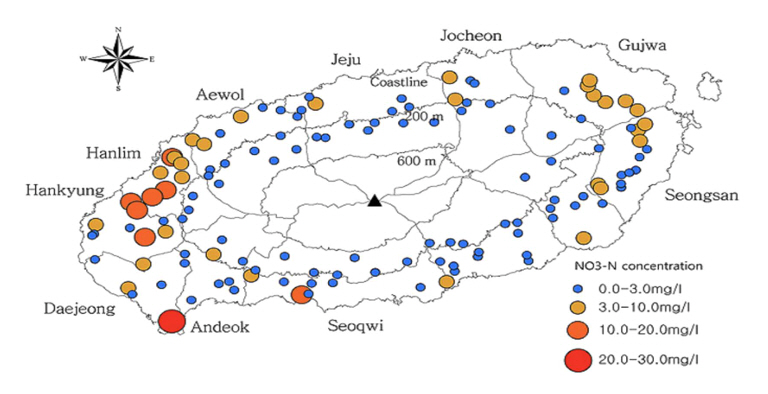
Figure┬Ā8.
Seawater intrusion vulnerability map (2020). [Korea Institute of Civil Engineering and Building Technology]
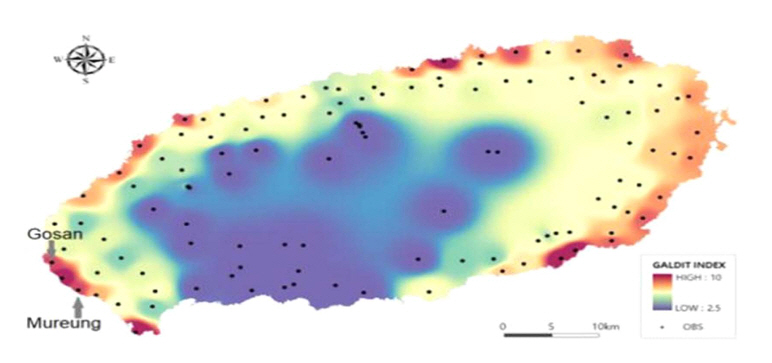
Table┬Ā1.
K-SDGs for smart green city
[Written by the research team based on data from National Center for Sustainable Development Portal. http://ncsd.go.kr/ksdgs/]
Table┬Ā2.
Current status of water facilities in Jeju (2020, percentage in parentheses)
[KOSIS National Statistical Portal. https://kosis.kr/index/index.do/. Statistics Korea]
Table┬Ā3.
Current status of groundwater use by city and province (2020, Proportion in parentheses)
[Korea Water Resources Corporation. https://www.kwater.or.kr/]
Table┬Ā4.
Current status of Jeju household waste treatment methods by year (2020, unit: %)
| ĻĄ¼ļČä | 2016 | 2017 | 2018 | 2019 | 2020 | |
|---|---|---|---|---|---|---|
| ņāØĒÖ£ĒÅÉĻĖ░ļ¼╝ | ļ¦żļ”Į | 23.2 | 18.6 | 16.0 | 6.9 | 5.5 |
| ņåīĻ░ü | 23.3 | 24.3 | 25.3 | 30.9 | 30.4 | |
| ņ×¼ĒÖ£ņÜ® | 53.4 | 57.0 | 58.8 | 62.2 | 63.3 | |
[Jeju Statistics Portal. https://www.jeju.go.kr/stats/index.htm/. Jeju Special Self-Governing Province]
Table┬Ā5.
Jeju landfill operation status
Table┬Ā6.
Jeju waste recycling treatment status
Table┬Ā7.
Water-related problems
Table┬Ā8.
Waste-related problems
Table┬Ā9.
Jeju smart green city performance indicators and goals
Table┬Ā10.
Jeju smart green city performance indicator promotion roadmap
Table┬Ā11.
A comparison of major laws and plans related to Jeju
Table┬Ā12.
Linkages of service-ordinance-global spread
Table┬Ā13.
SDGs targets and key indicators for Jeju
Table┬Ā14.
Global spread guidelines
Table┬Ā15.
Steps of circular governance for Jeju smart green city
References
Cosmetic Insight. (2021). https://www.cosinkorea.com/mobile/article.html?no=40551 (accessed Aug. 2022).
eds. by M. J. Cotteleer, S. Trouton and Dobner, (2016). In: 3D opportunity and the digital thread - Additive manufacturing ties it all together, Deloitte University Press.
Environmental Big Data Platform, https://www.bigdata-environment.kr/user/main.do.
European Commission. (2019). The European Green Deal.
European Commission. (2020). Circular Economy Action Plan.
Geissdoerfer, M., Savaget, P., Bocken, N. M. P., and Hultink, E. J. (2017). The Circular Economy - A new sustainability paradigm? Journal of Cleaner Production, 143(1), pp. 757-768.

Halla News. (2022). https://m.ihalla.com/article.php?aid=1644207396720440079 (accessed Aug. 2022).
HelloDD, (2021). https://www.hellodd.com/news/articleView.html?idxno=92985 (accessed July. 2022).
Huh, T. (2020). Tackling the Tension between Sustainable Development and Governance through Self-organizing Governance with Blockchain. The Korean Association of NGO Studies, 15(1), pp. 145-173.

Intergovernmental Panel and Climate Change (IPCC). (2021). Summary for Policymakers. In: In: Climate Change 2021: The Physical Science Basis. Contribution of Working Group I to the Sixth Assessment Report of the Intergovernmental Panel on Climate Change [Masson-Delmotte], eds. by V. Zhai, A. Pirani, S. L. Connors, C. Pean, S. Berger, N. Caud, Y. Chen, L. Goldfarb, M. I. Gomis, M. Huang, K. Leitzell, E. Lonnoy, J.B.R. Mattews, T. K. Maycock, T. Waterfield, O. Yelekci, R. Yu and B. Zhou, Cambridge University Press, In Press.
Jeju Cty. (2021). Urban Regeneration Plan for Yongdam 1-dong.
Jeju Maeil. (2019). http://www.jejumaeil.net/news/articleView.html?idxno=201448 (accessed Aug. 2022).
Jeju Sori. (2019). http://www.jejusori.net/news/articleView.html?idxno=300700 (accessed July. 2022).
Jeju Sori. (2022). http://www.jejusori.net/news/articleView.html?idxno=410253 (accessed Dec. 2022).
Jeju Special Self-Governing Province Statistics Portal, https://www.jeju.go.kr/stats/index.htm.
Jeju Special Self-Governing Province. (2020a), Establishment of Vision for Creating Northeast Asia's Environmental Capital in 2030.
Jeju Special Self-Governing Province. (2020b). Proposal for Smart Green City.
Jeju Special Self-Governing Province. (2021a). Jeju International Free City Comprehensive Plan 3rd Edition.
Jeju Special Self-Governing Province. (2021b). Basic Plan for Creating Jeju Global Environmental Capital in 2030 (Draft).
Jeju Special Self-Governing Province. (2021c). Achievements and Challenges of Jeju CFI 2030 Promotion Plan.
Jeju Special Self-Governing Province. (2022). Comprehensive Plan for Jeju Smart City Based on ESG.
Jeju Traffic News. (JJTNEWS). (2021). http://www.jjtnews.co.kr/news/articleView.html?idxno=4784 (accessed Aug. 2022).
Jung, E., Park, N., and Cho, K. (2017). Composite model for seawater intrusion in groundwater and soil salinization due to sea level rise. Journal of Korea Water Resources Association, 50(6), pp. 387-395. https://doi.org/10.3741/JKWRA.2017.50.6.387.

Korea Environment Corporation. (2022). 2022 Jeju Plus International Environmental Forum.
Korea Water Resources Corporation, https://www.kwater.or.kr/.
KOSIS National Statistical Portal, https://kosis.kr/index/index.do.
Li, W., Xu, J., and Zheng, M. (2018). Green Governance: New Perspective from Open Innovation. Sustainability, 10(11), pp. 3845.

Media Jeju. (2022). http://www.mediajeju.com/news/articleView.html?idxno=338575 (accessed Aug. 2022).
Microdata Integrated Service, https://mdis.kostat.go.kr/index.do.
Ministry of Environment Smart Green City, https://smartgreencity.kr/kor/index.php.
Ministry of Environment, http://me.go.kr/home/web/main.do.
Monthly Electrical Journal. (2021). http://www.keaj.kr/news/articleView.html?idxno=3838 (accessed Aug. 2022).
Murray, A., Scene, K., and Haynes, K. (2017). The Circular Economy: An Interdisciplinary Exploration of the Concept and Application in a Global Context. Journal of Business Ethics, 140(3), pp. 369-380.


Nam, K.-W., Park, J.-W., Park, J.-H., and Ji, S.-T. (2017). The Organizational Structure and Role of Smart City Governance. Journal of the Korean Regional Science Association, 33(1), pp. 69-85. https://doi.org/10.22669/KRSA.2017.33.1.069.

National Assembly Futures Institute (NAFI). (2022). Analysis of Strategies and Case Studies on Regional Circular Economies, 20(6.
National Center for Sustainable Development Portal, http://ncsd.go.kr/.
National Law Information Center, https://www.law.go.kr/.
News Today. (2022). https://www.news2day.co.kr/article/20220419500190 (accessed Aug. 2022).
Organisation for Economic Co-operation and Development (OECD). (2018). OECD Studies on Water Implementing the OECD Principles on Water Governance: Indicator Framework and Evolving Practices.
Pig People. (2022). http://www.pigpeople.net/mobile/article.html?no=11092 (accessed Aug. 2022).
Schroeder, P., Anggraeni, K., and Weber, U. (2018). The Relevance of Circular Economy Practice to Sustainable Development Goals. Journal of Industrial Ecology, 23(9.
Science and Technology Policy Institute (STEPI). (2020). Jeju National Crsis Forum Report.
SK Ecoplant NEWSROOM. (2021). https://news.skecoplant.com/plant-tomorrow/1478/ (accessed Aug. 2022).
Smart City Today. (2022). https://www.smartcitytoday.co.kr/news/articleView.html?idxno=23197 (accessed Aug. 2022).
Sustainable Development Korea, http://www.sdkorea.org/.
The Asia Business Daily. (2021). https://www.asiae.co.kr/article/2021102913561677059 (accessed July. 2022).
The Kyunghyang Shinmun. (2022). https://m.khan.co.kr/national/national-general/article/202201270600011 (accessed July. 2022).
The Kyunghyang Shinmun. (2022). https://m.khan.co.kr/opinion/column/article/202205030300005 (accessed Aug. 2022).
The Yonhap News. (2020). https://www.yna.co.kr/view/AKR20200702097400530 (accessed July. 2022).
The Yonhap News. (2021). https://www.yna.co.kr/view/AKR20210614092500056 (accessed July. 2022).
- TOOLS




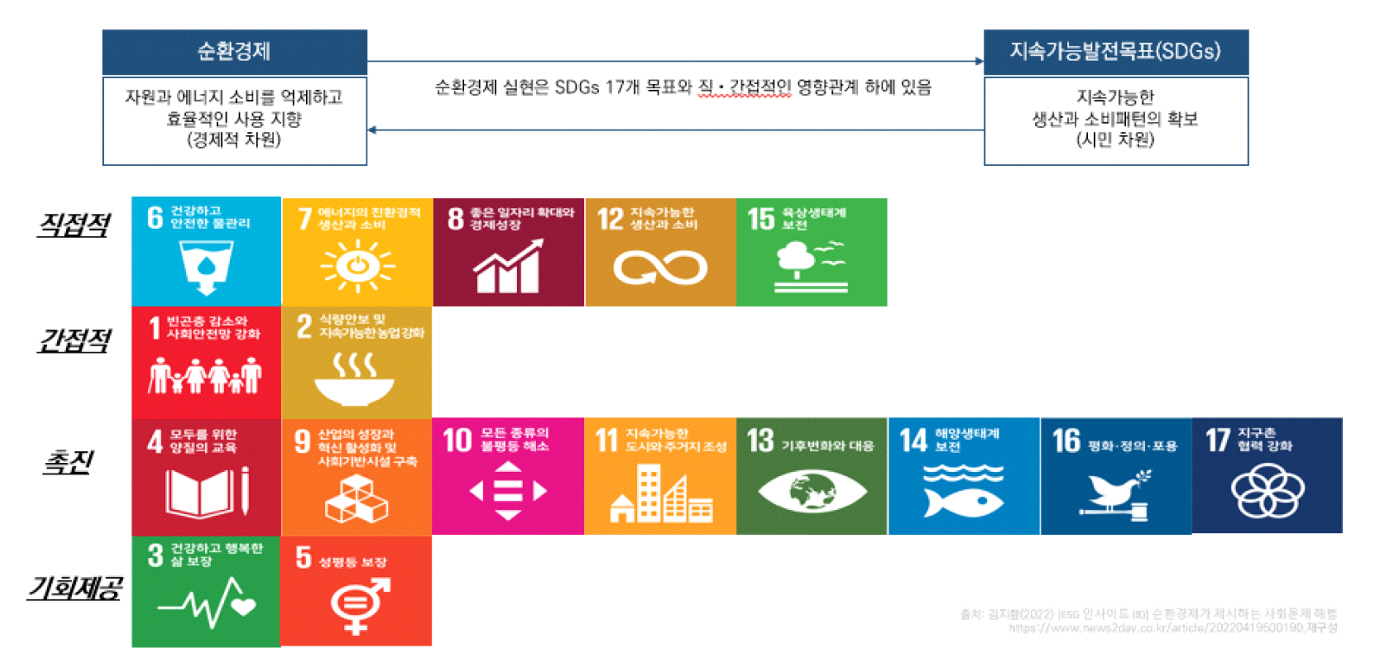

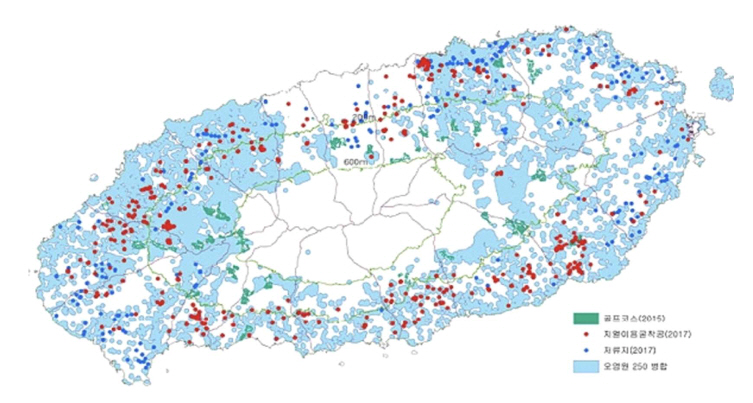
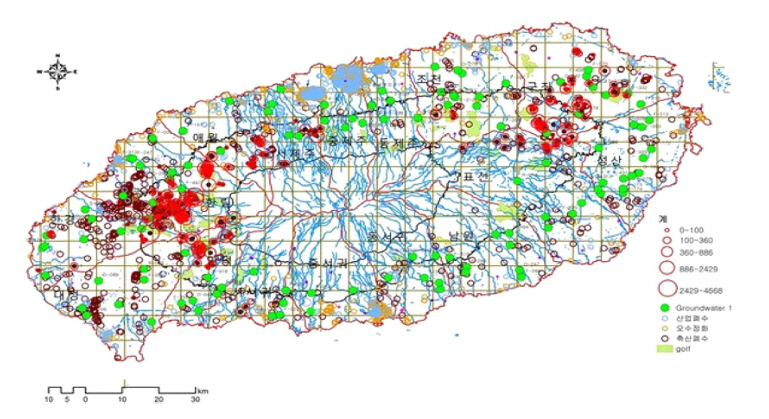
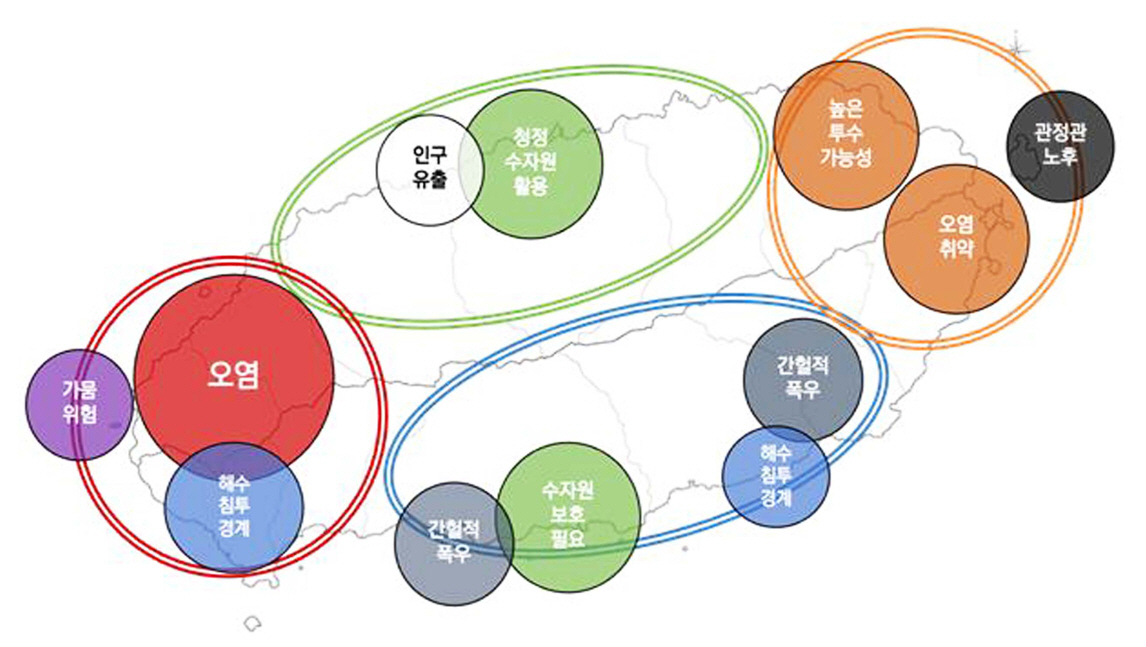
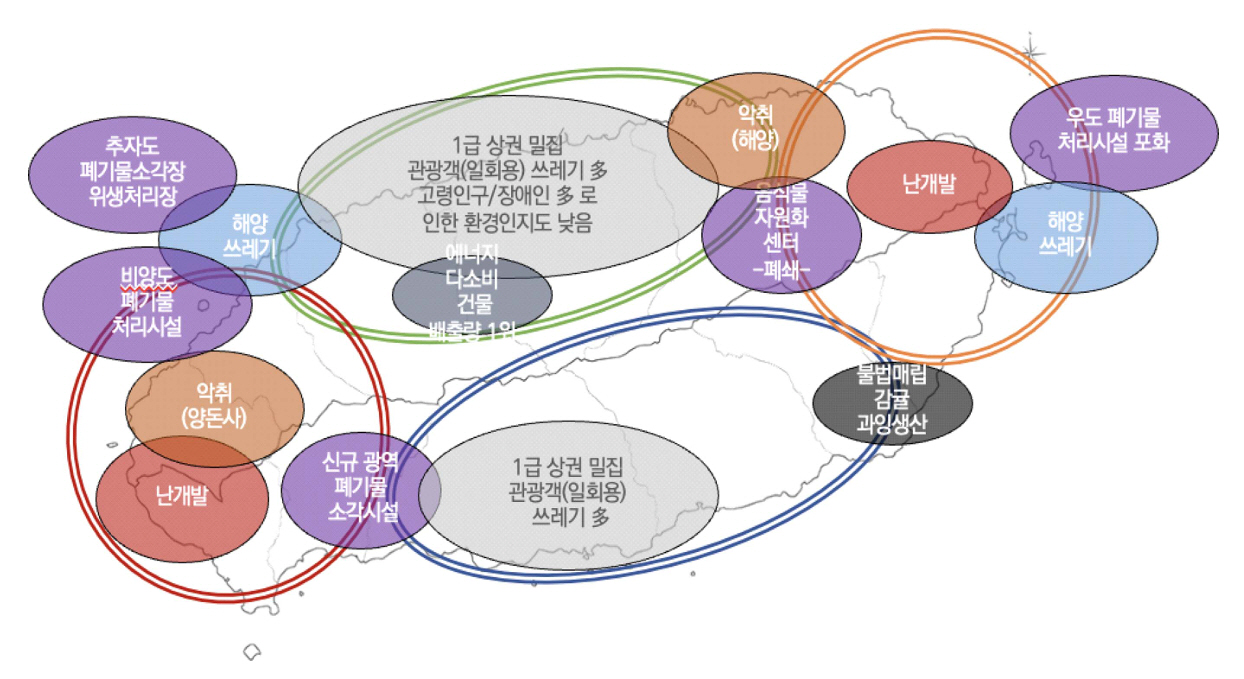
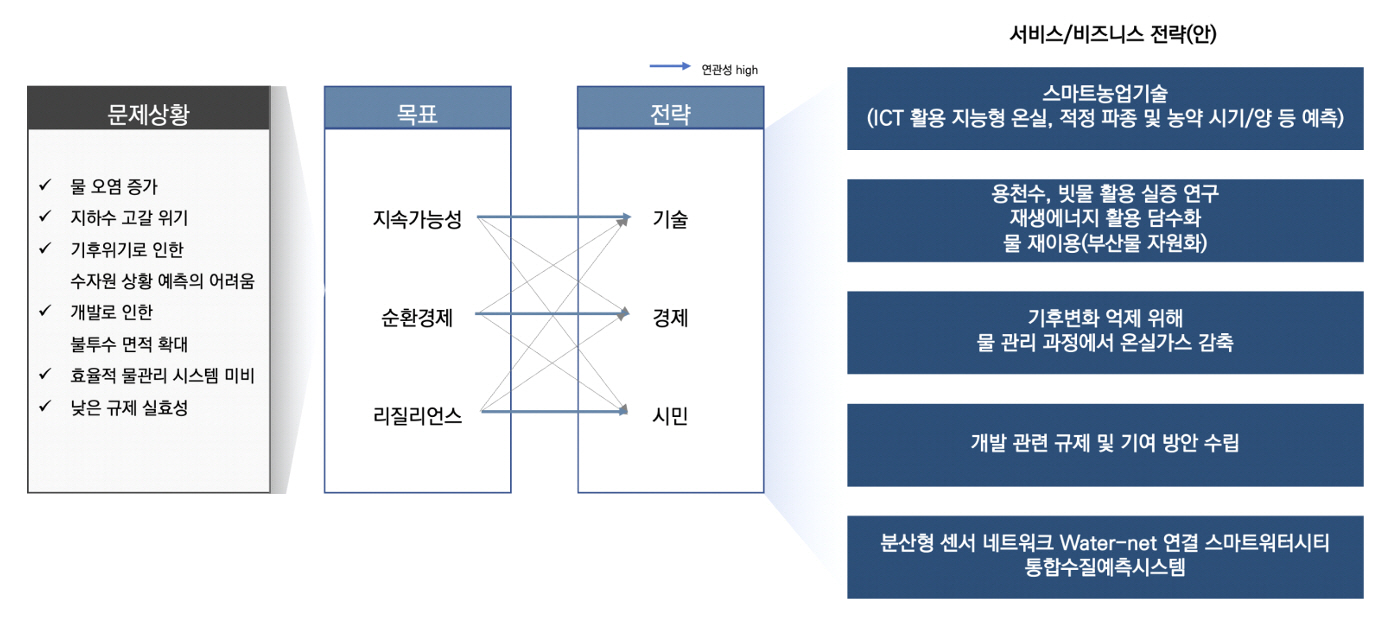
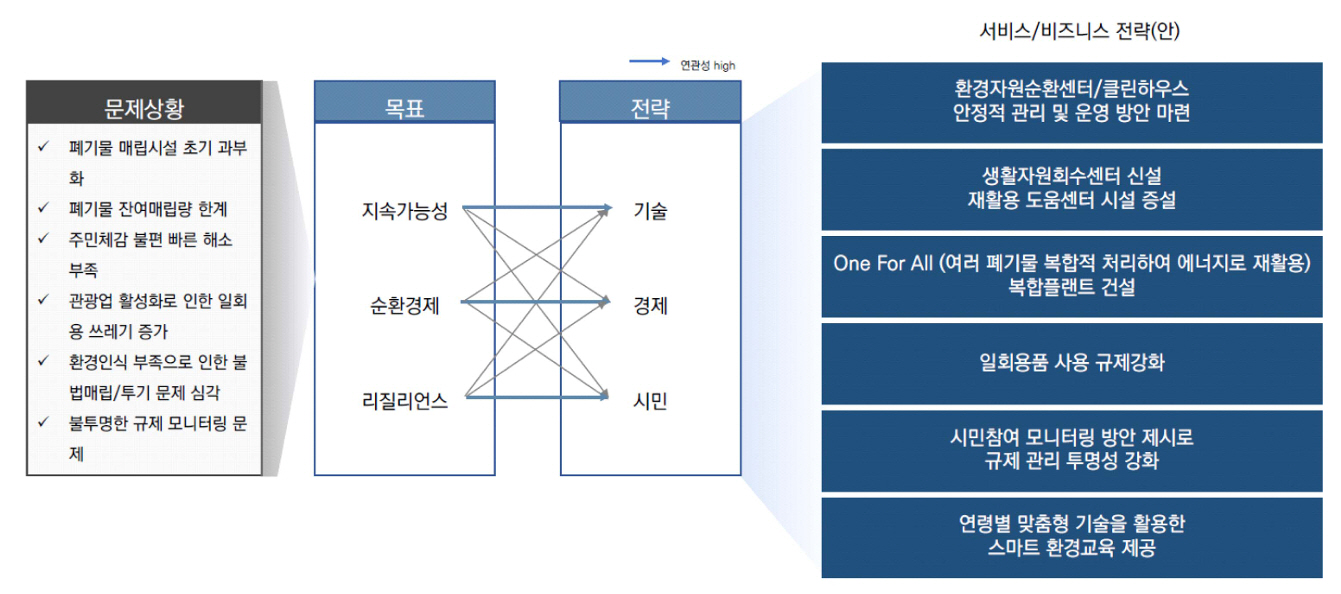
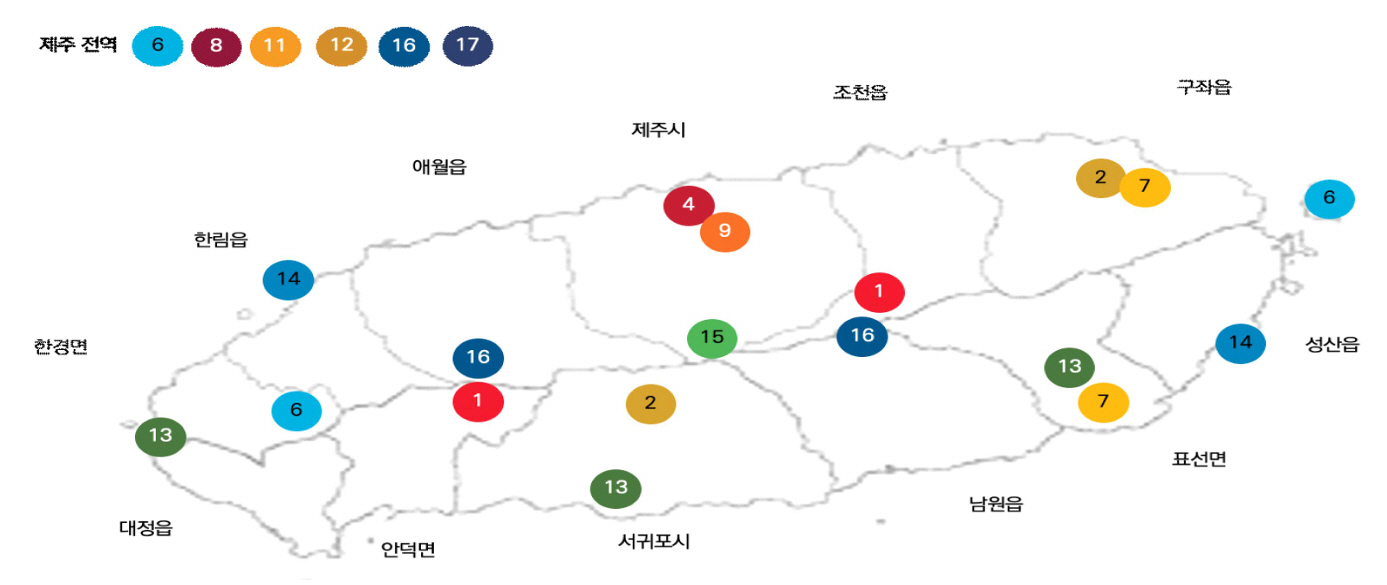
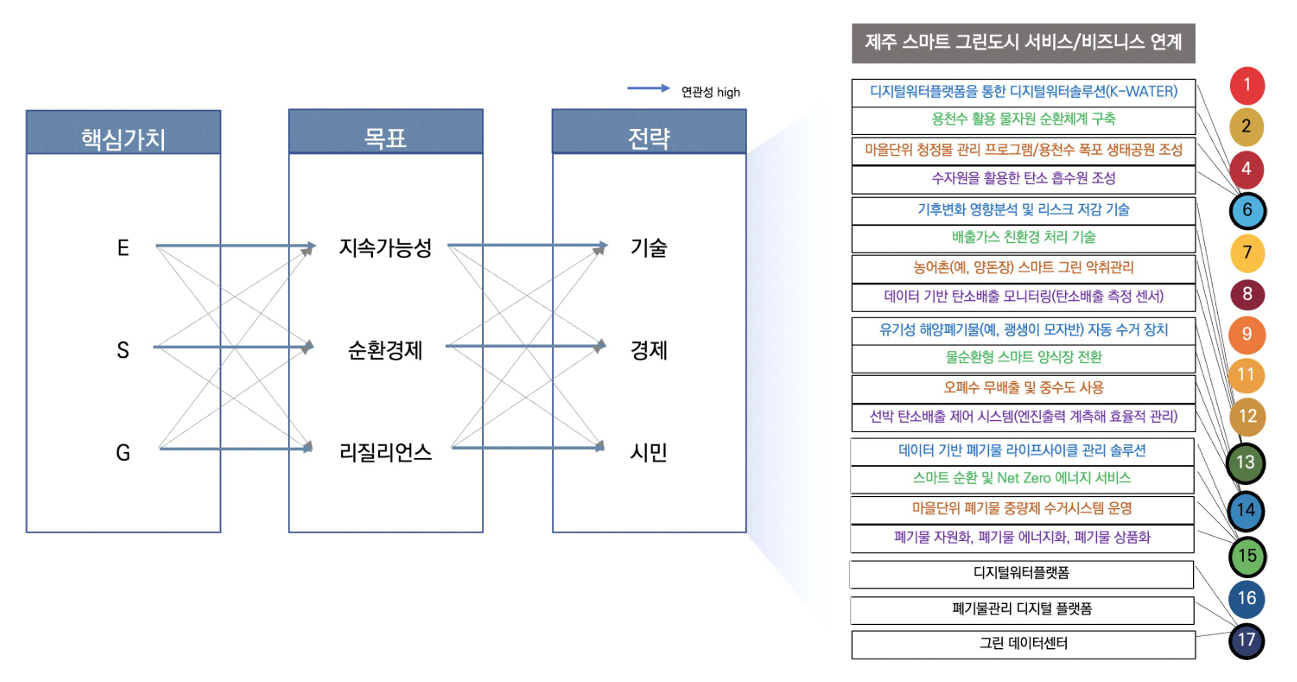
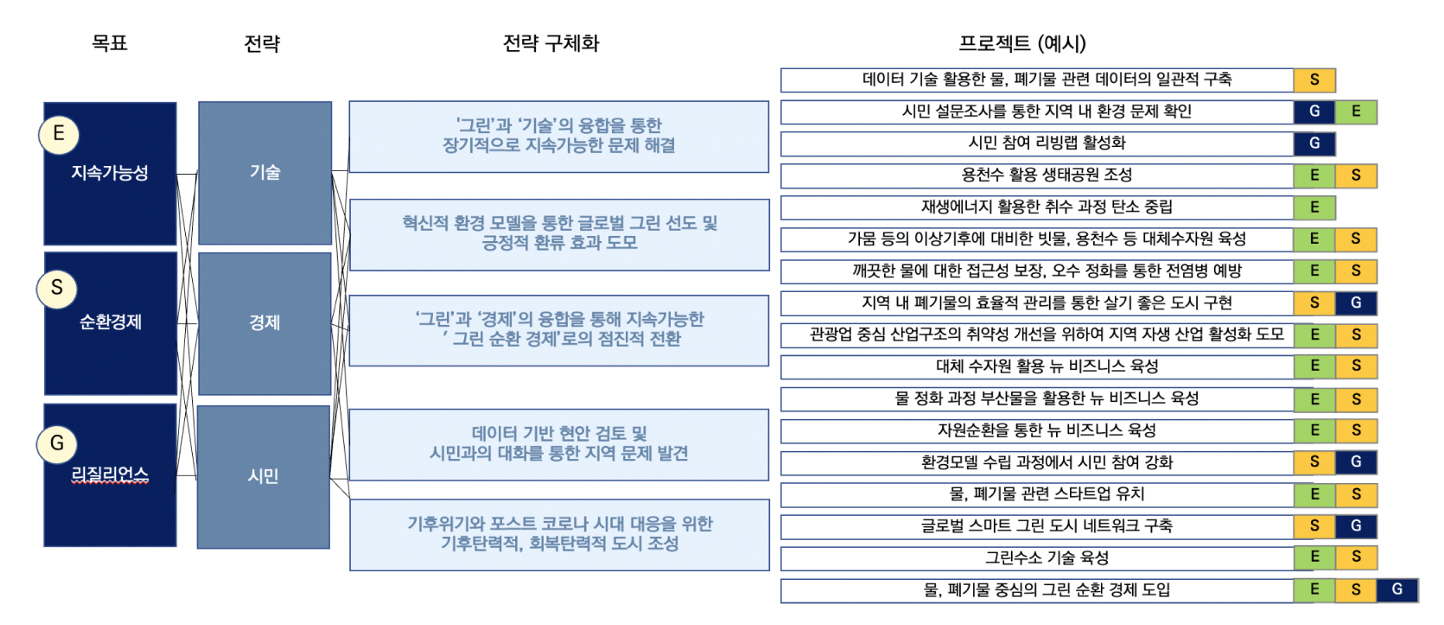
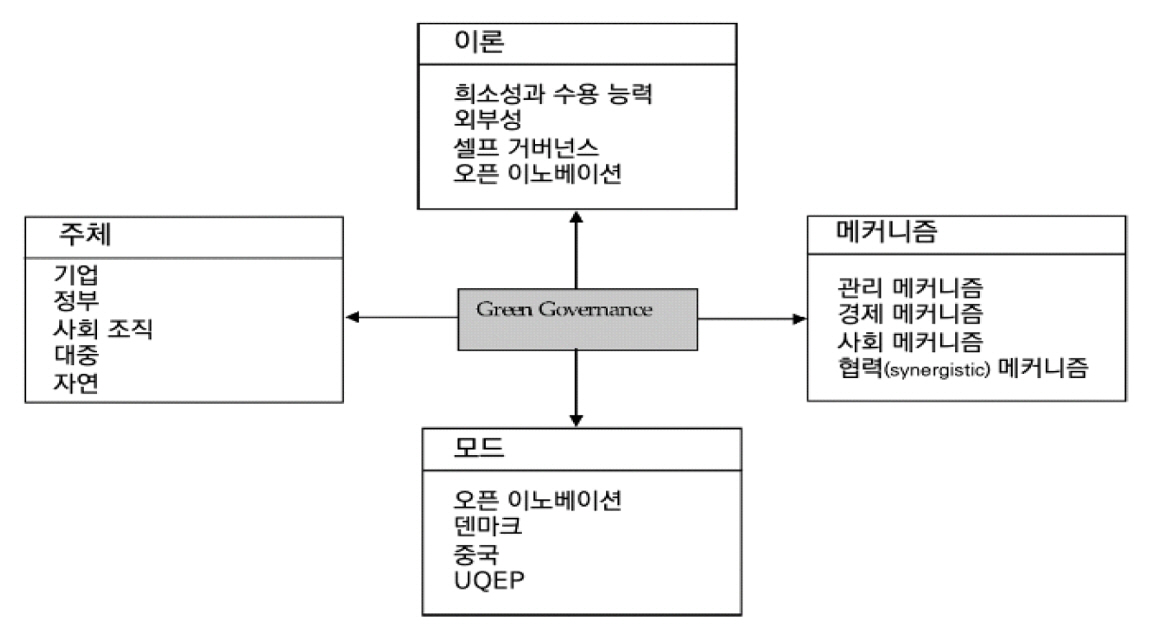
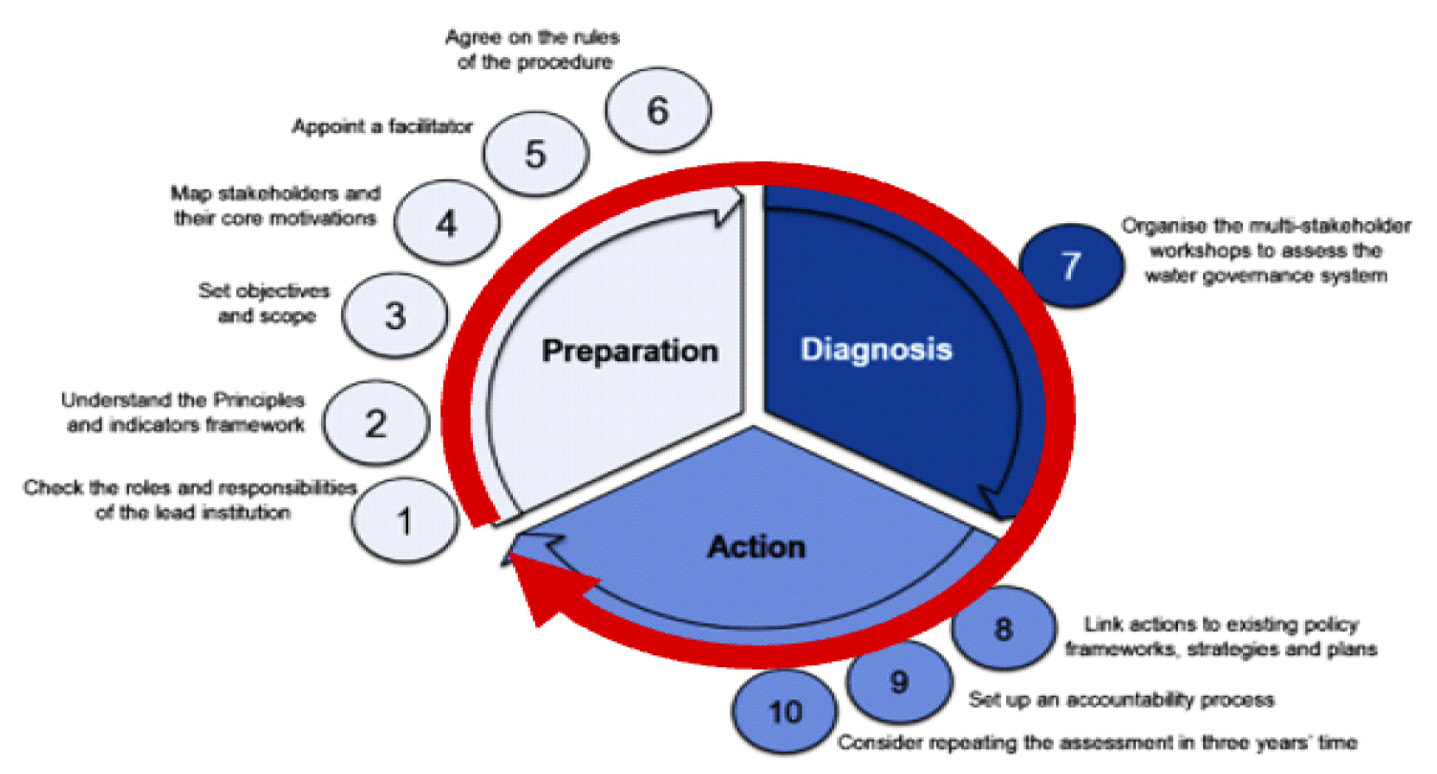
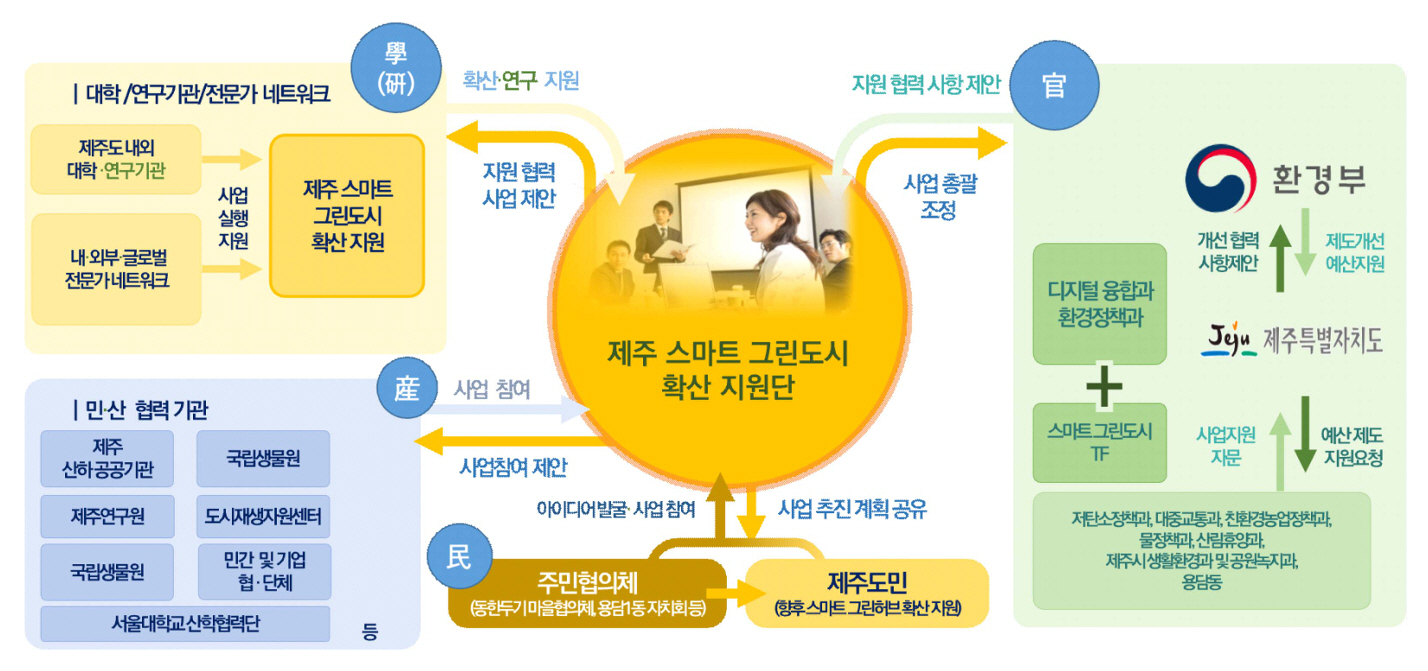
 PDF Links
PDF Links PubReader
PubReader ePub Link
ePub Link Full text via DOI
Full text via DOI Download Citation
Download Citation Print
Print




